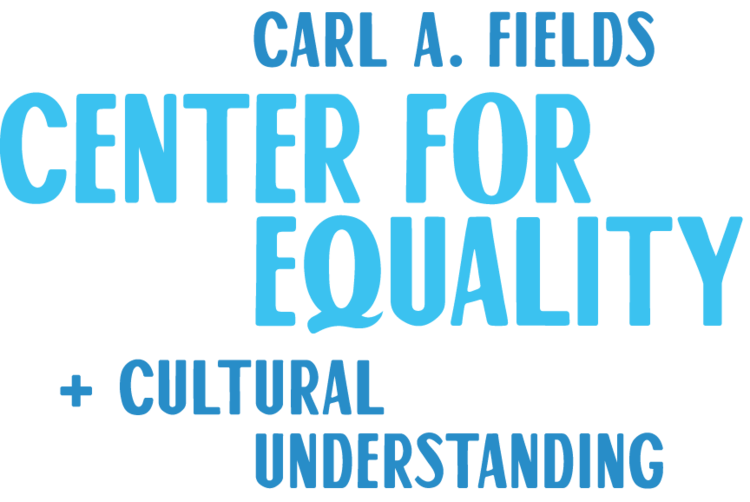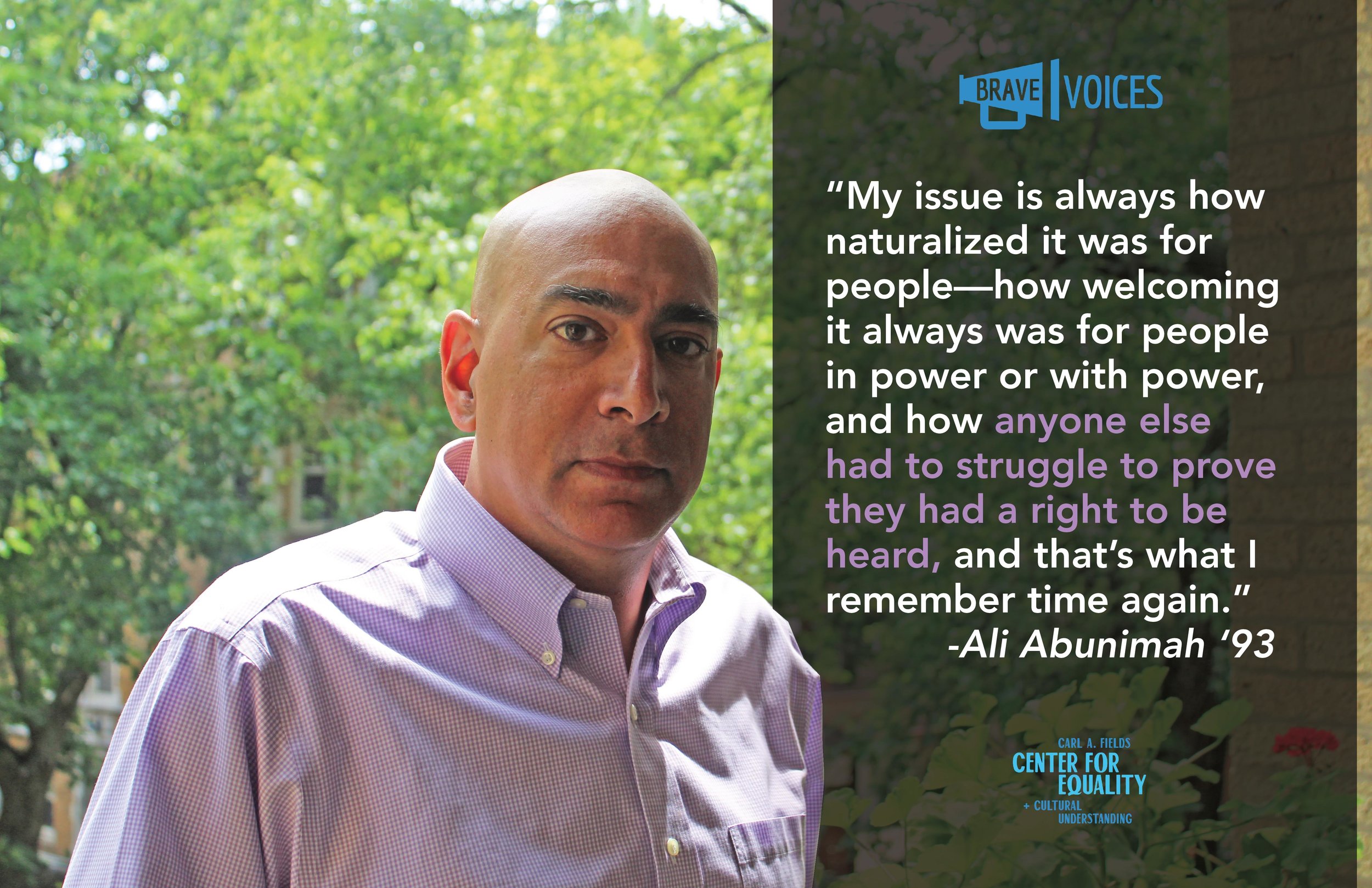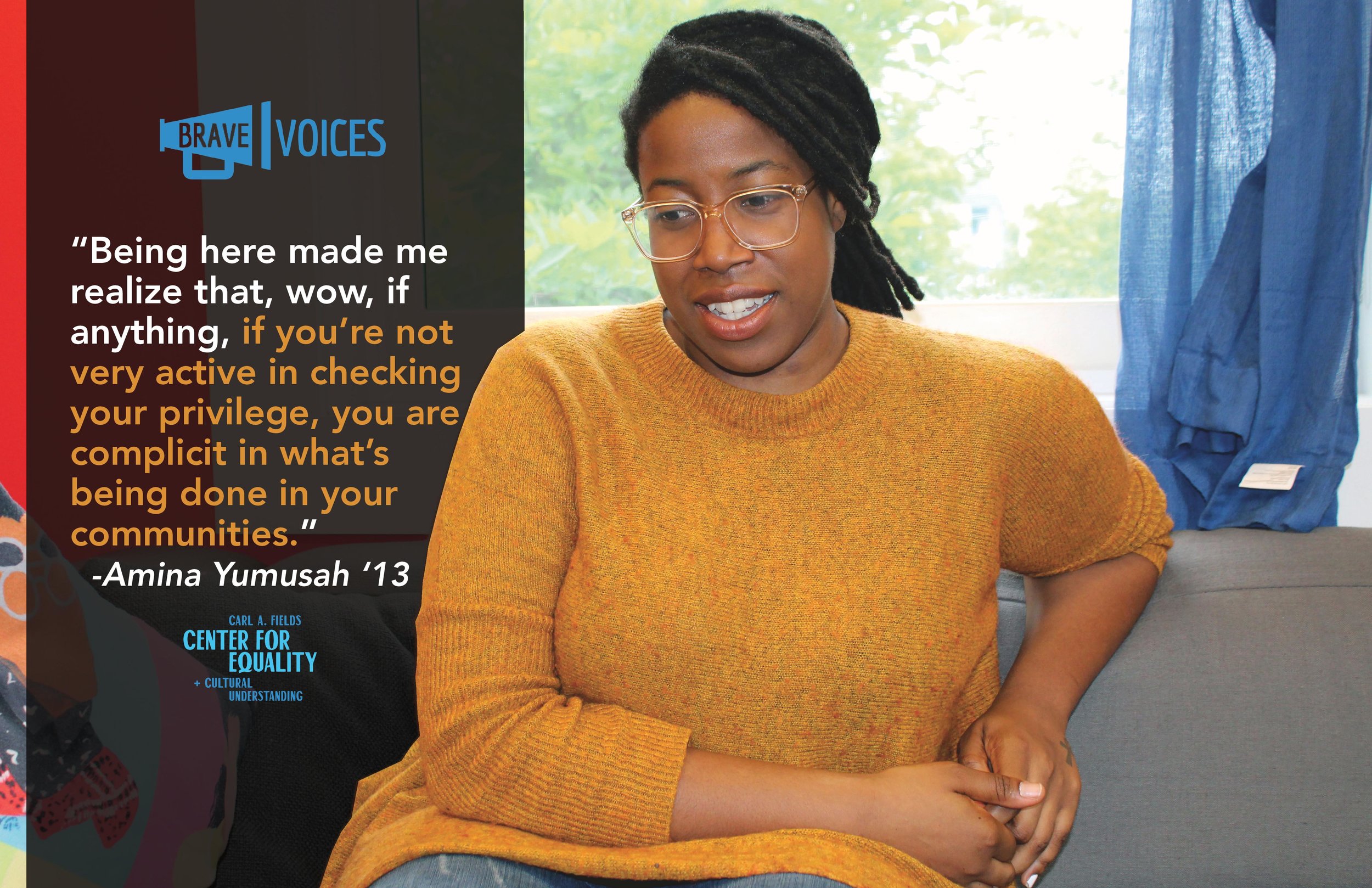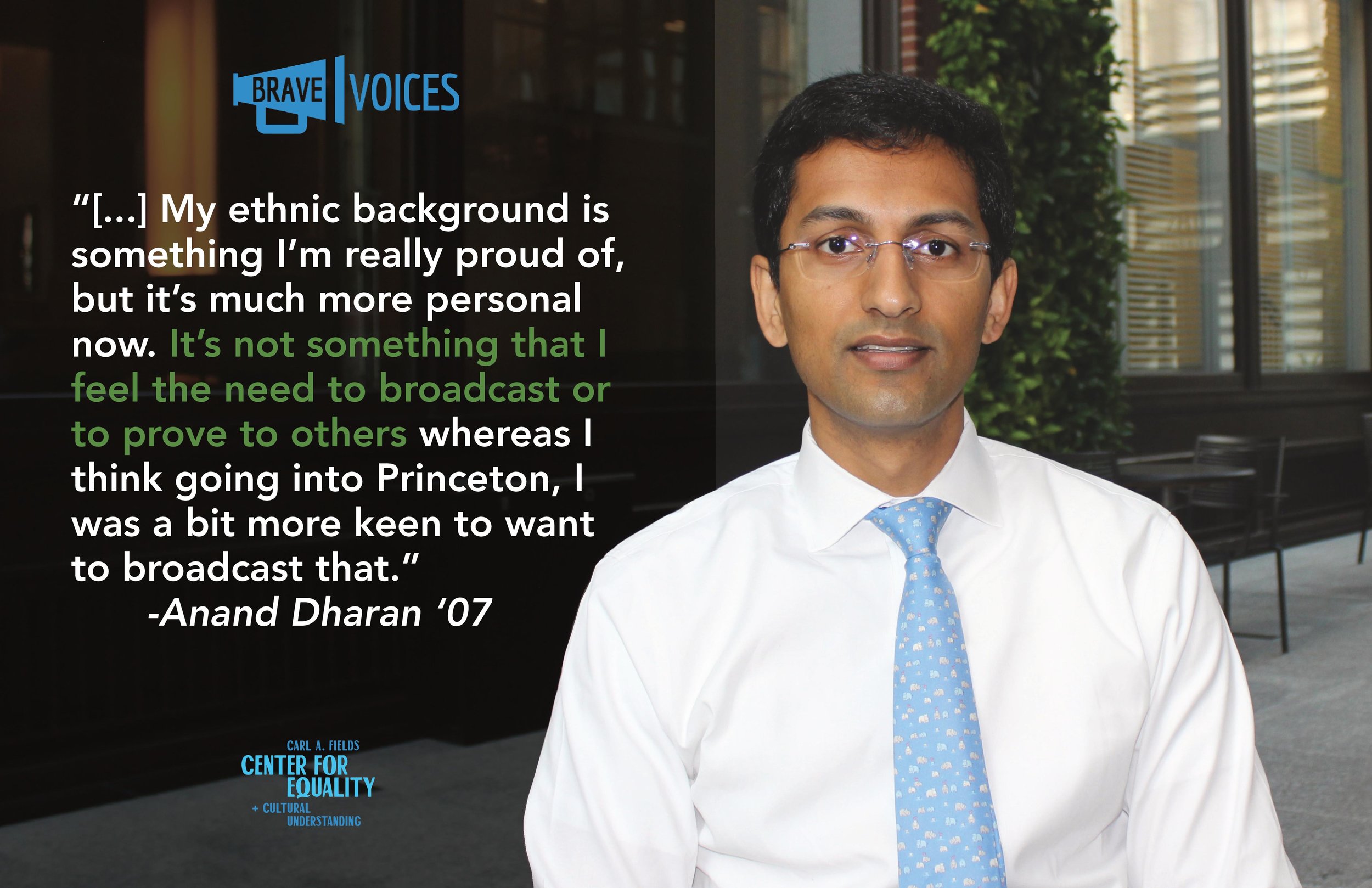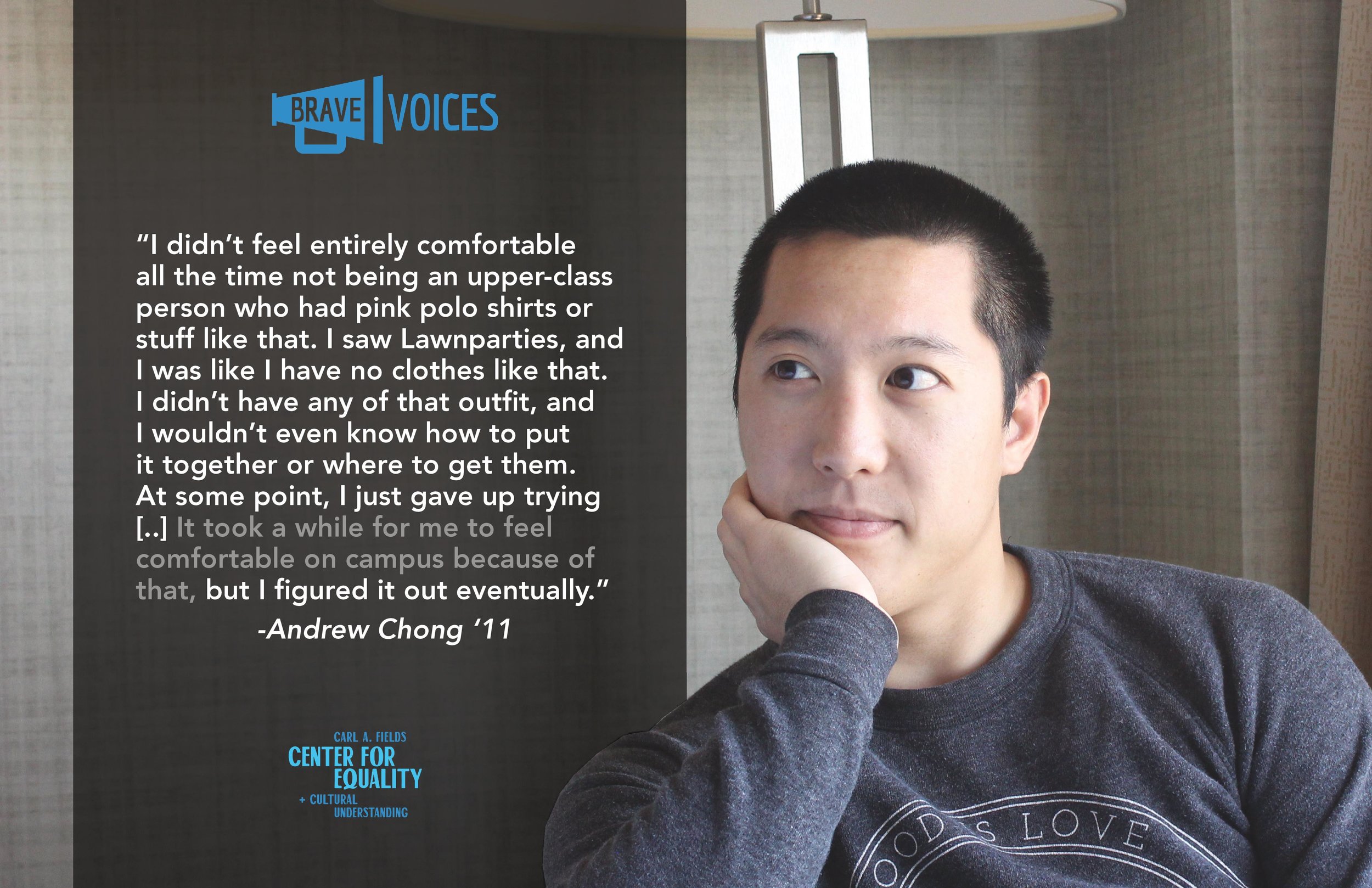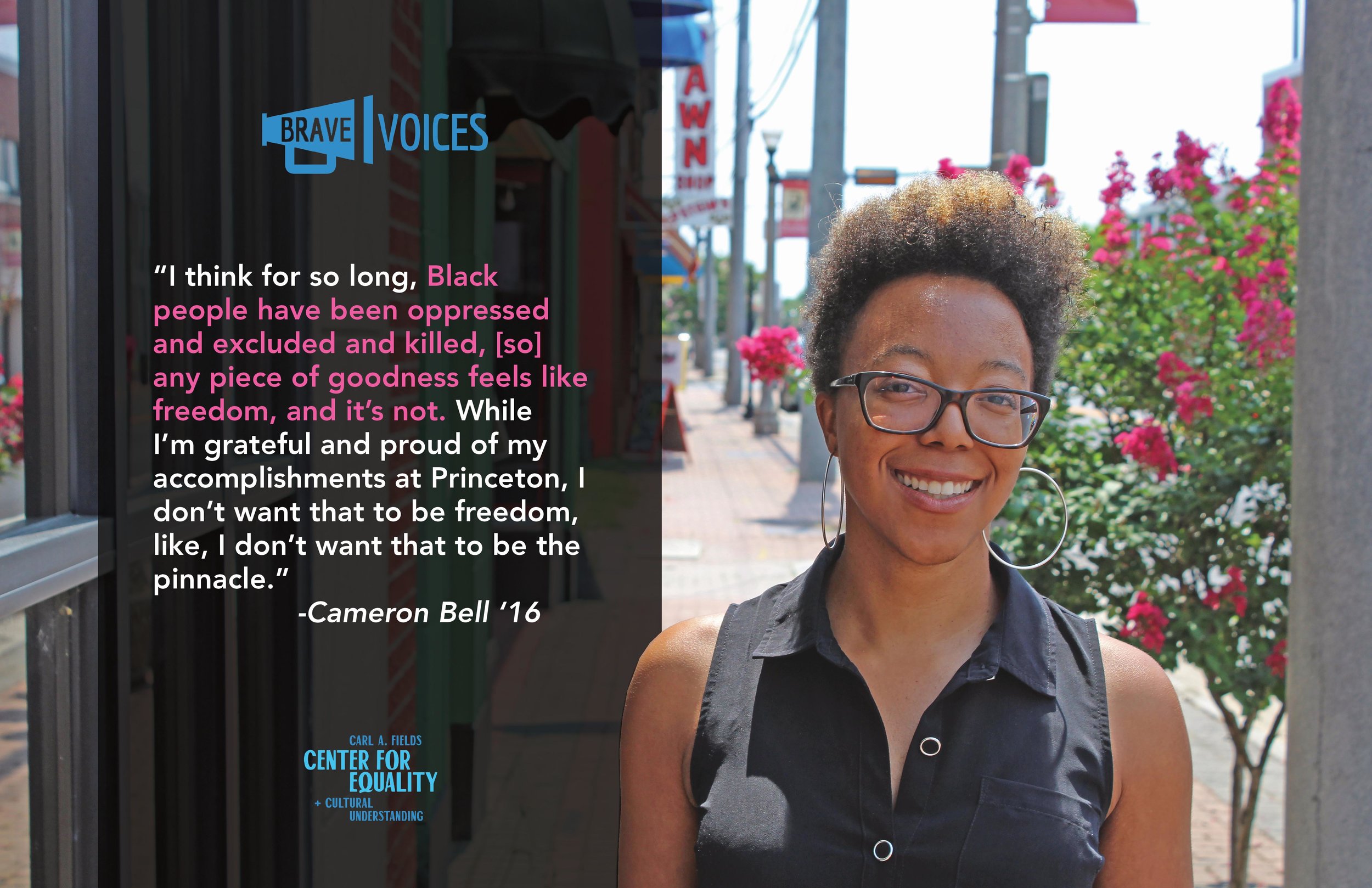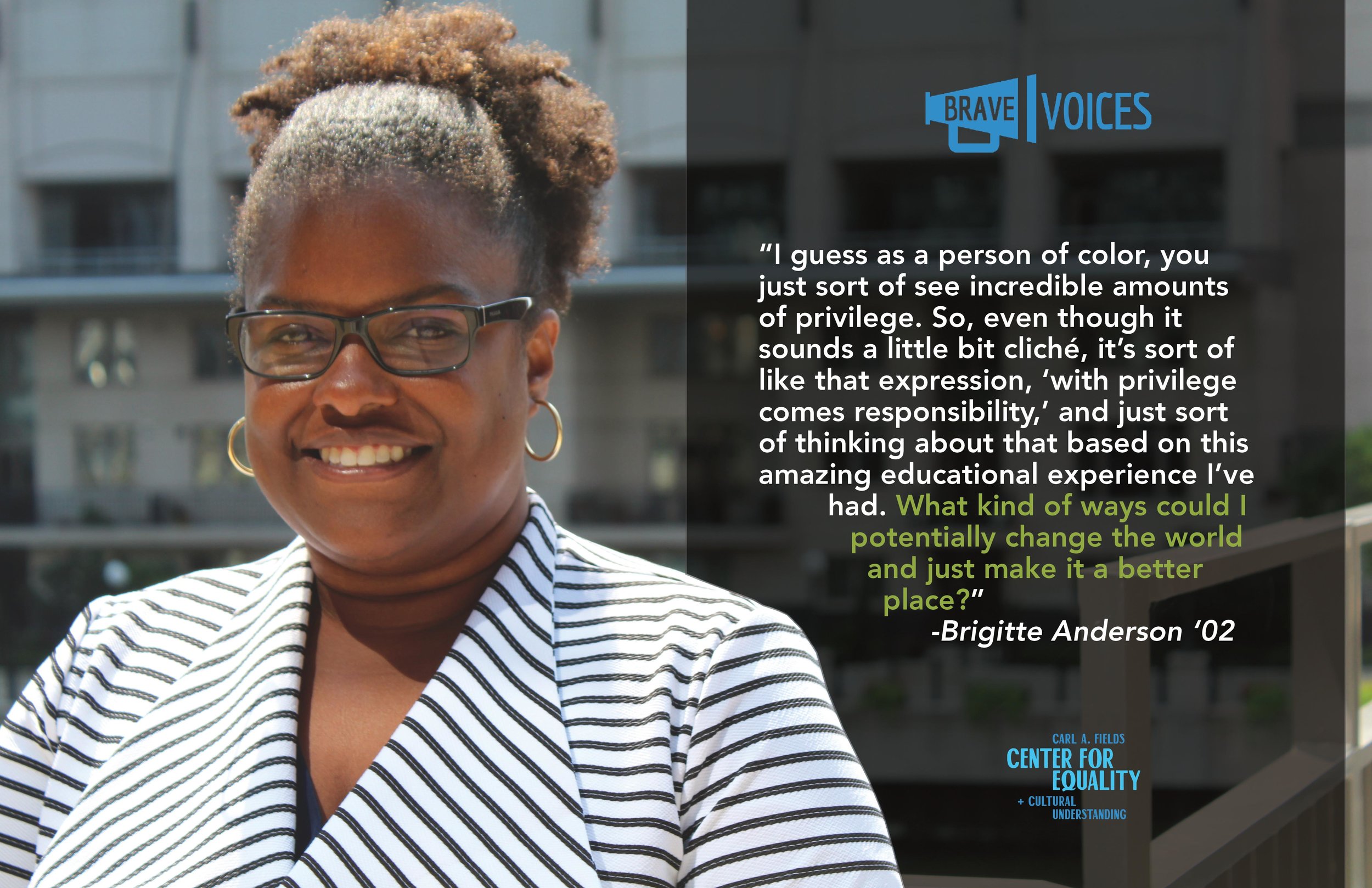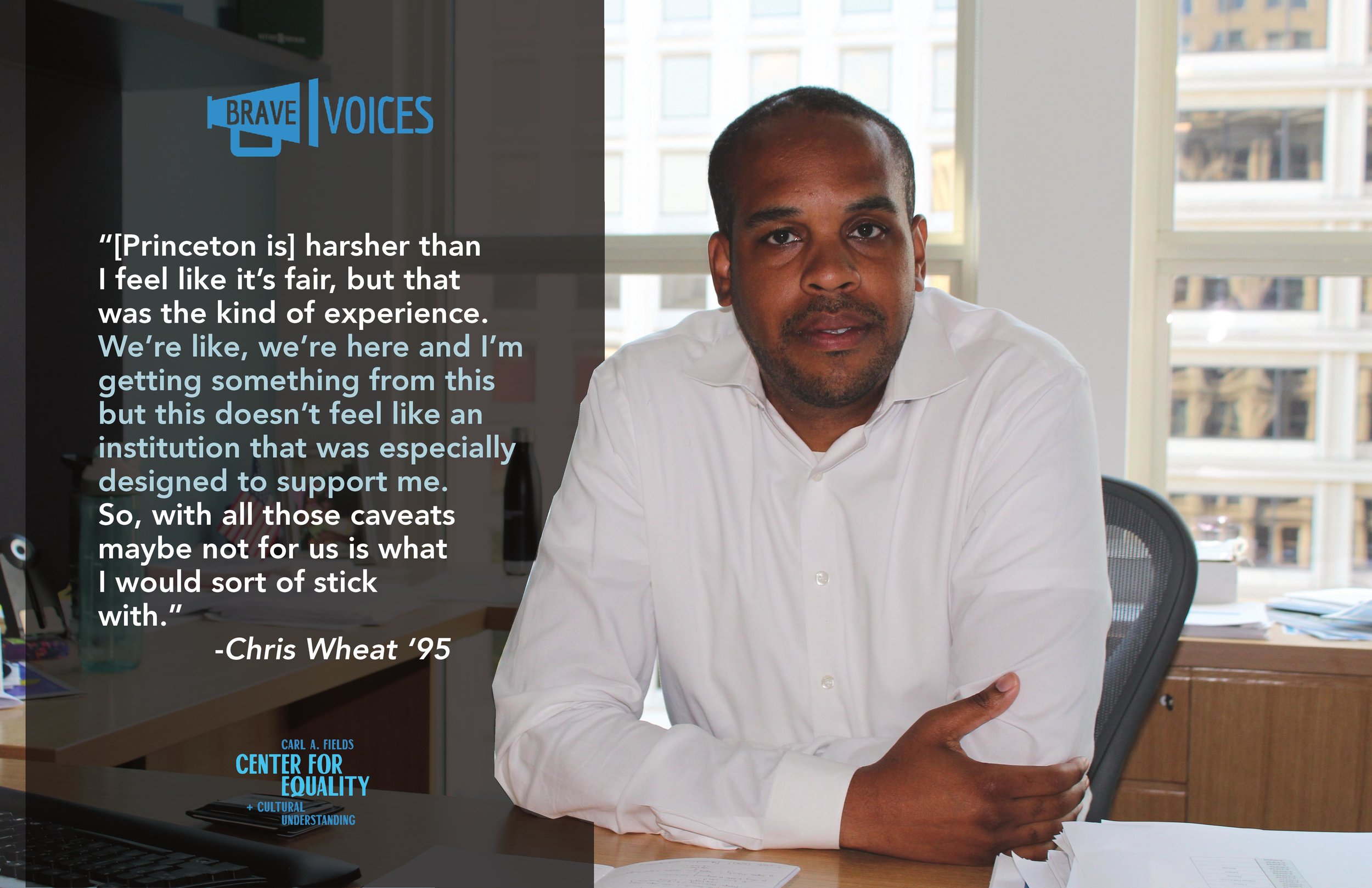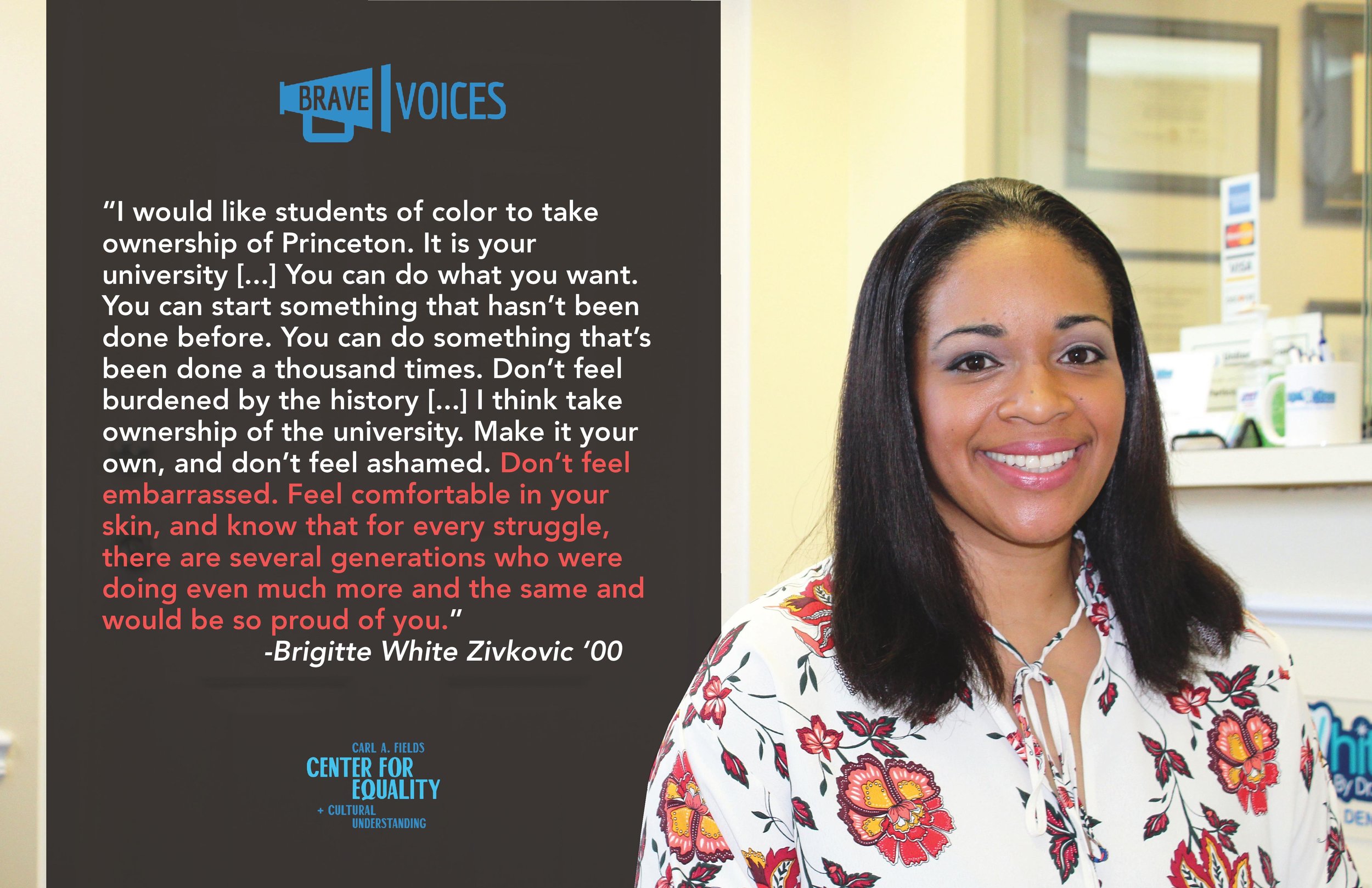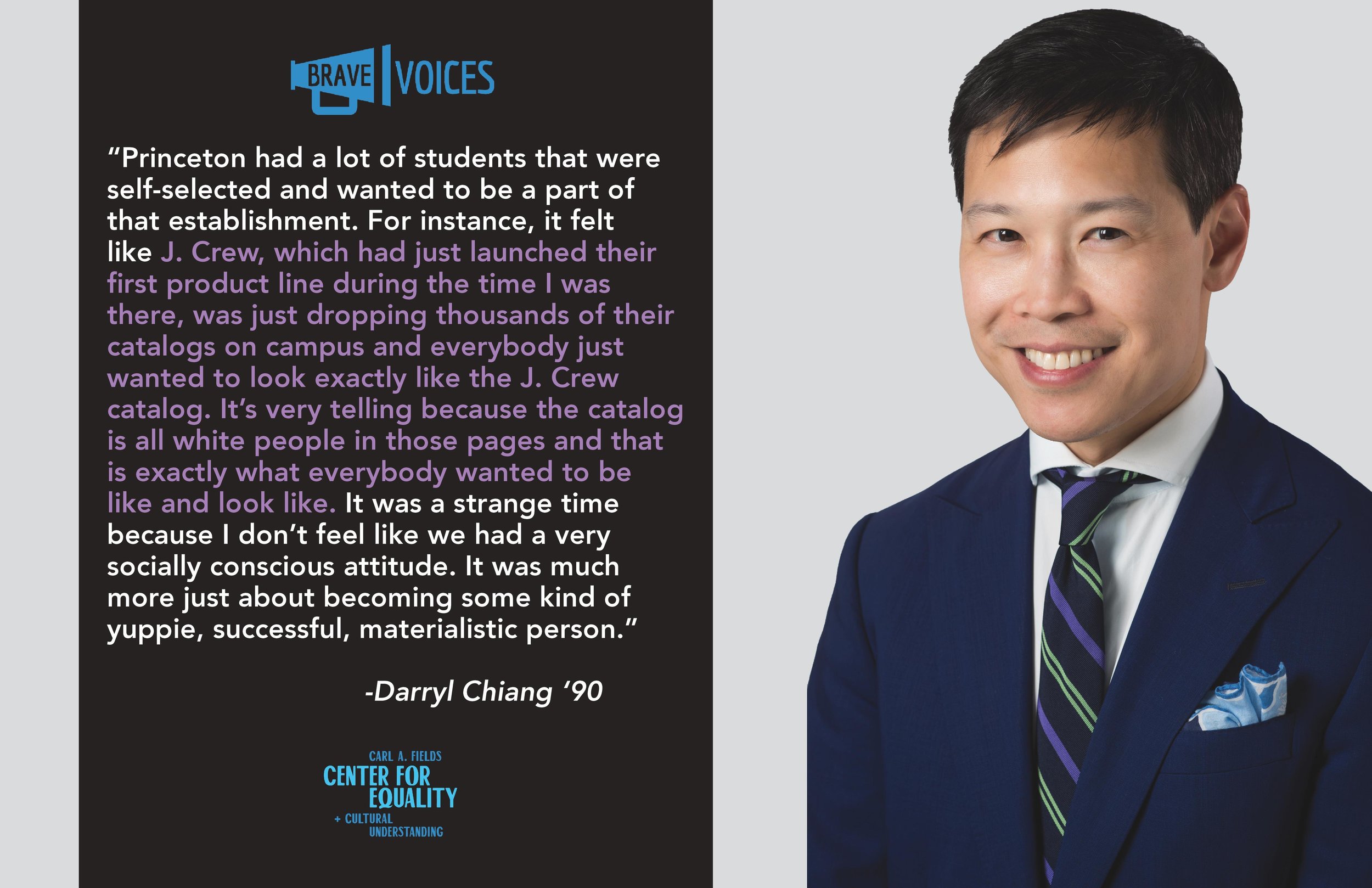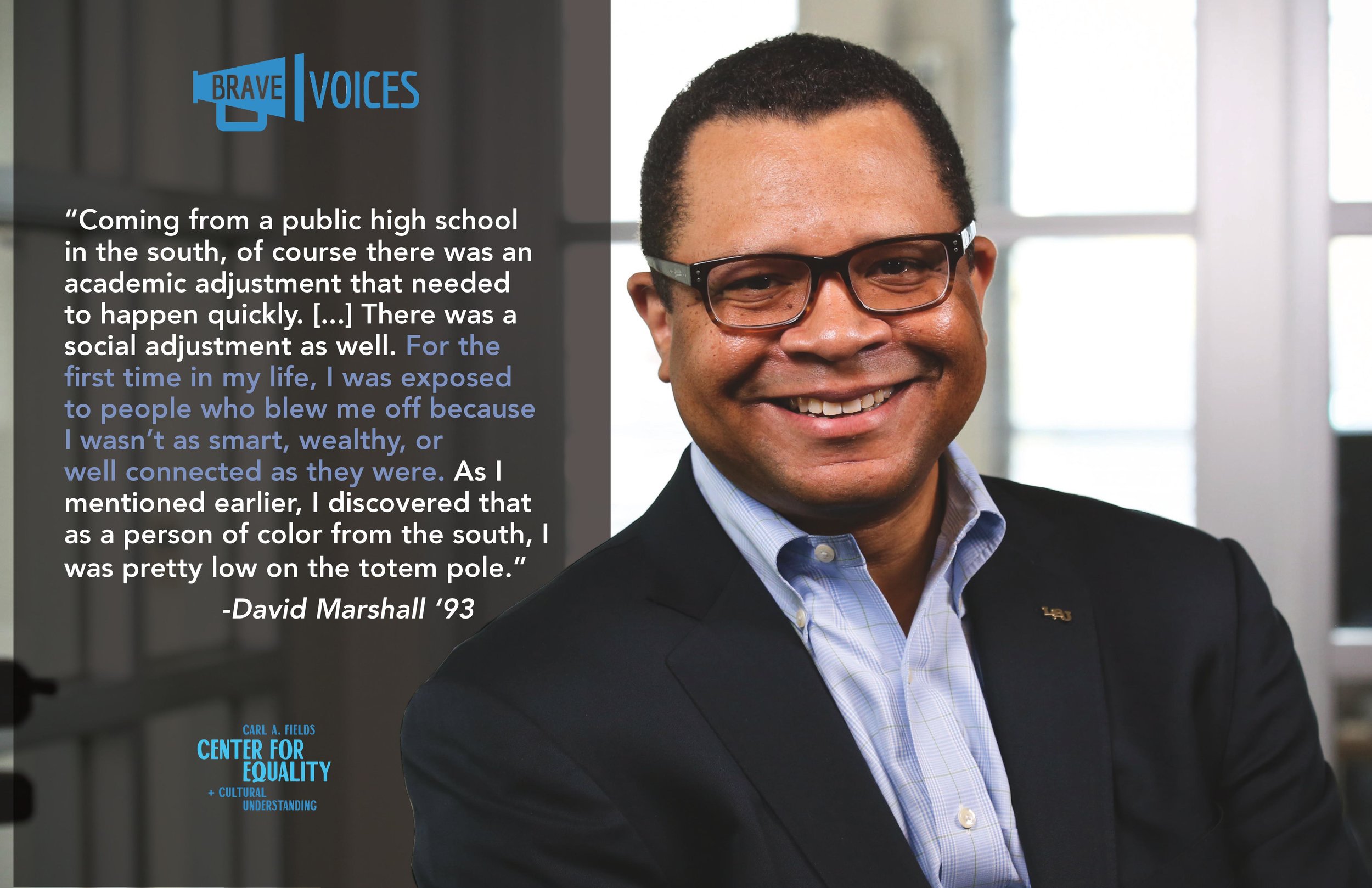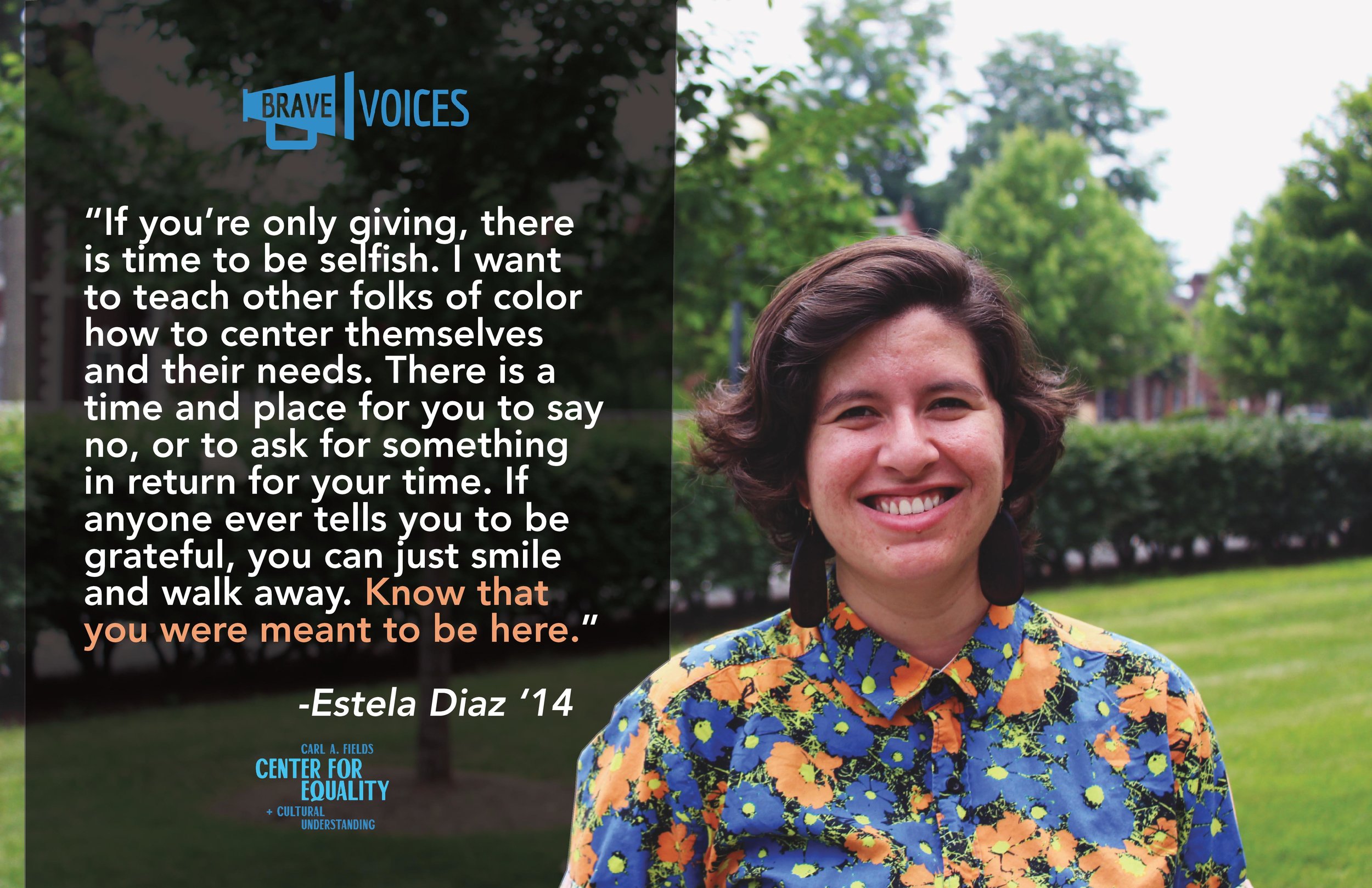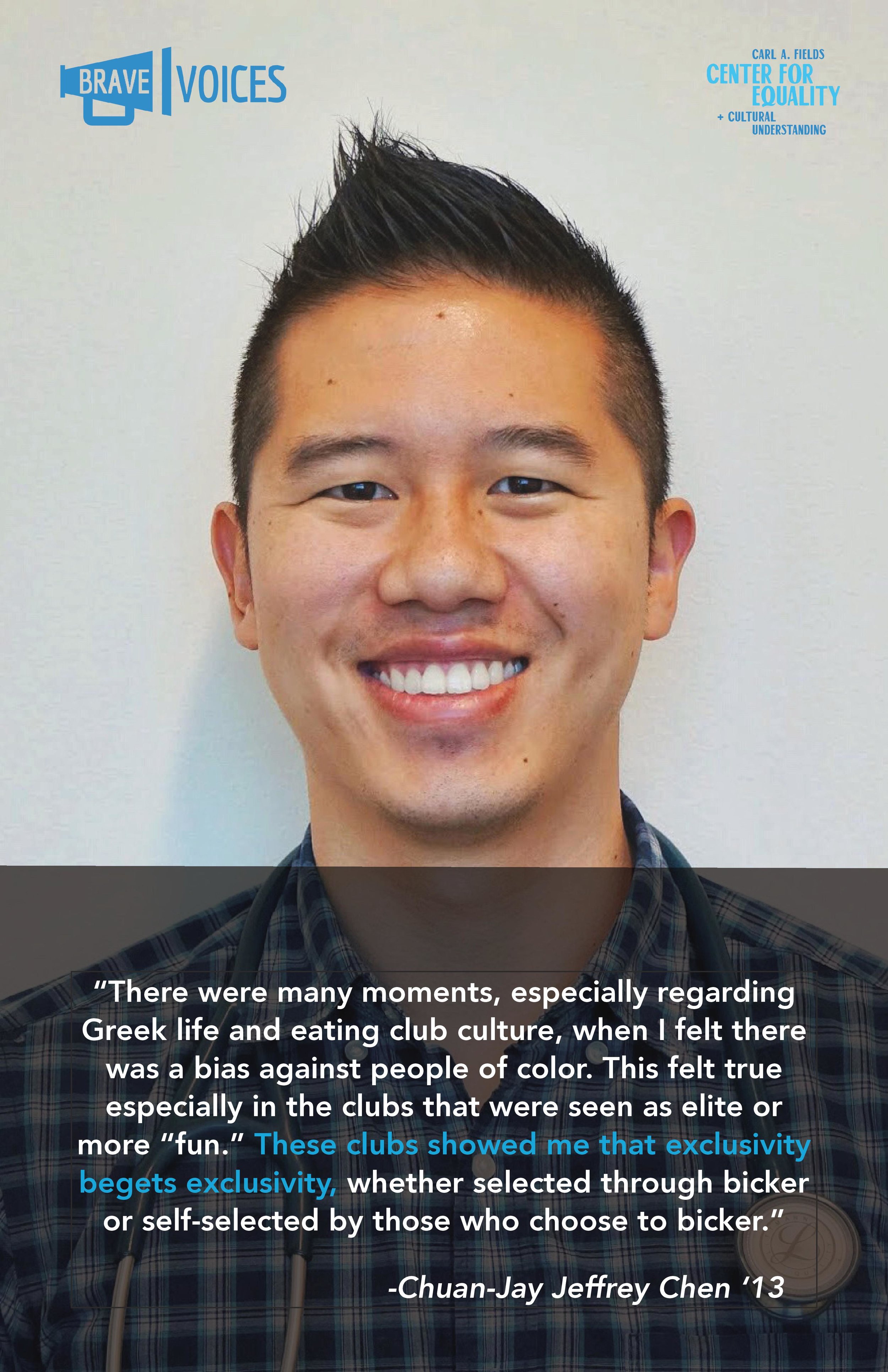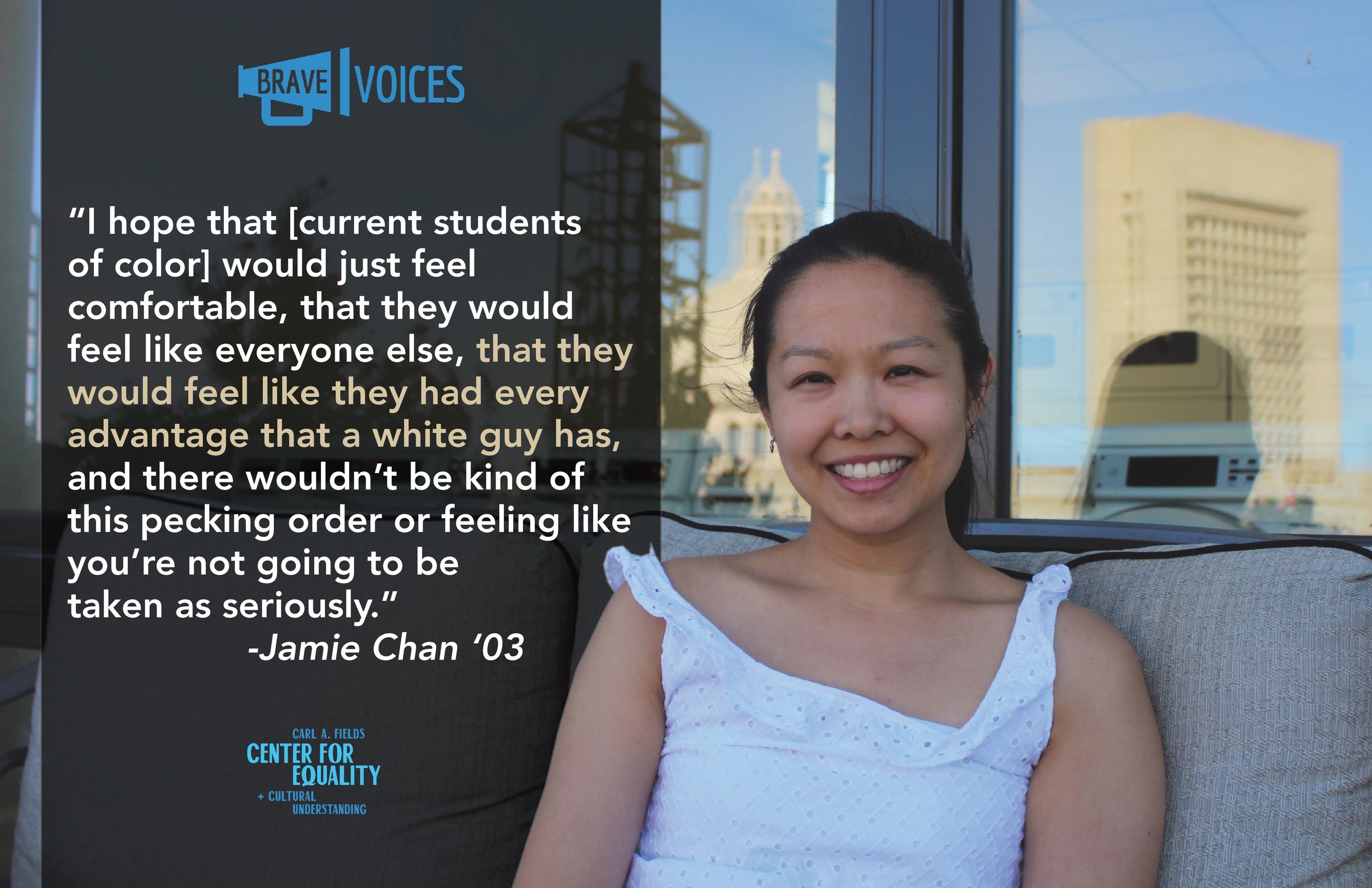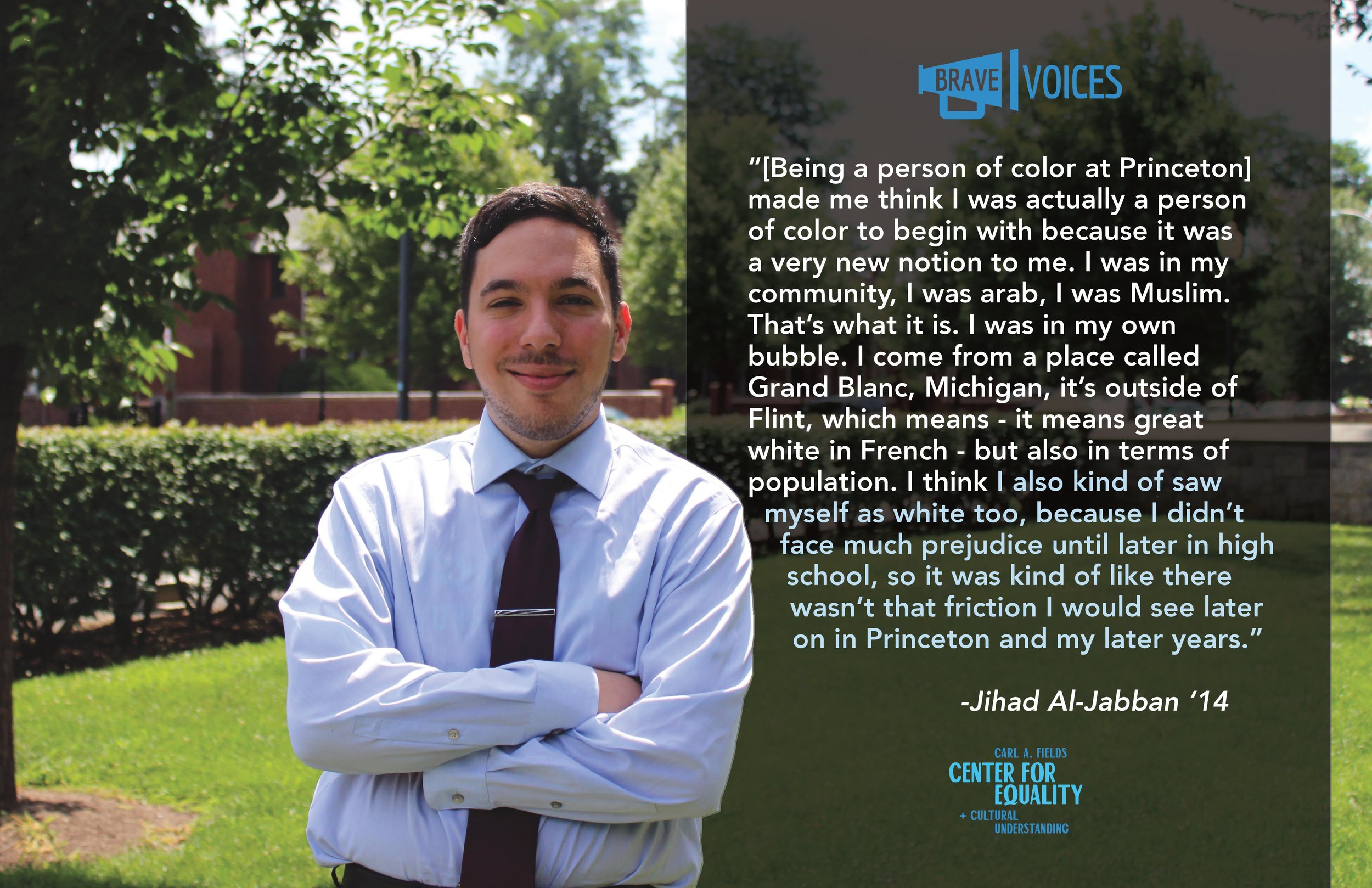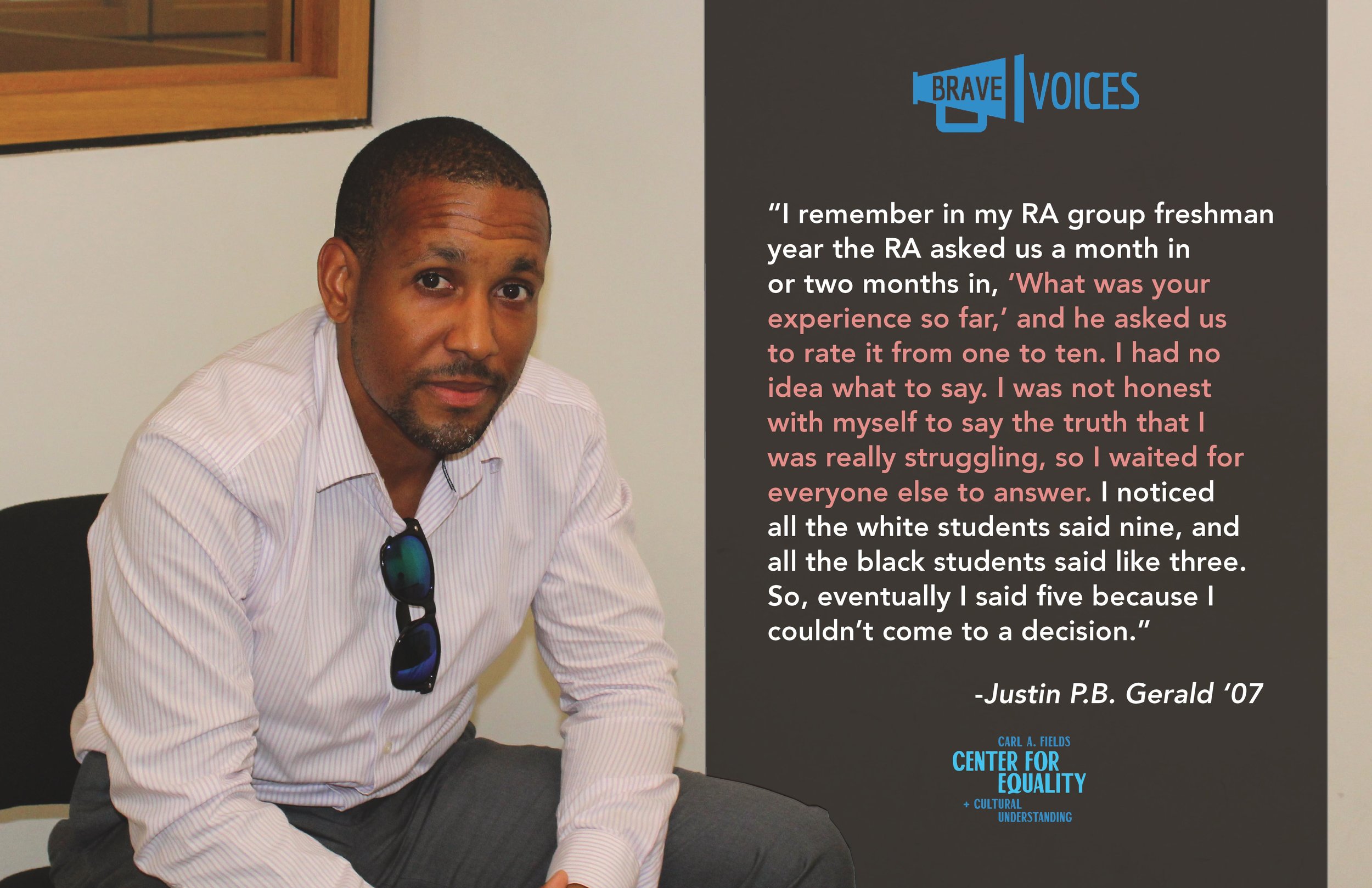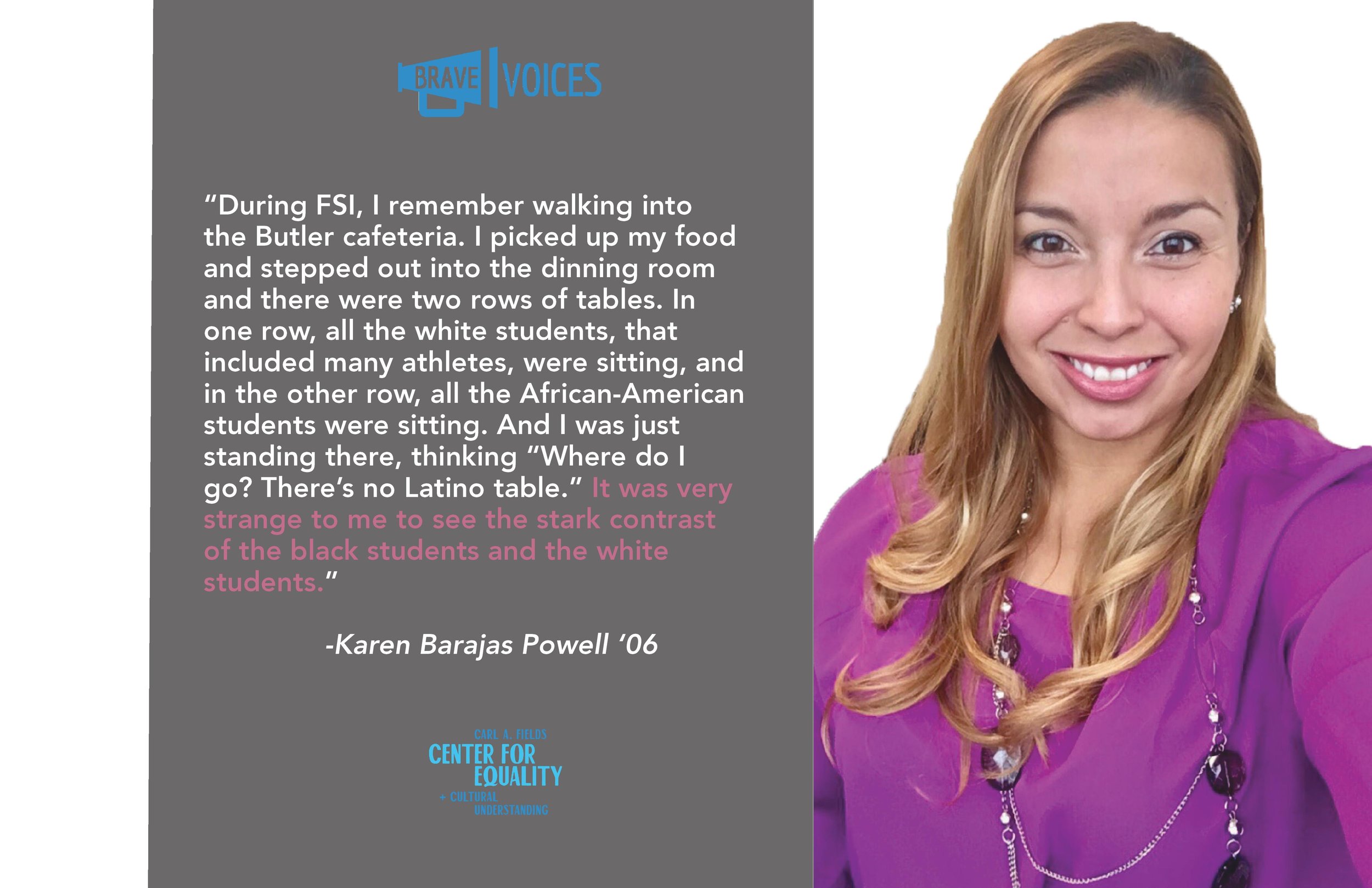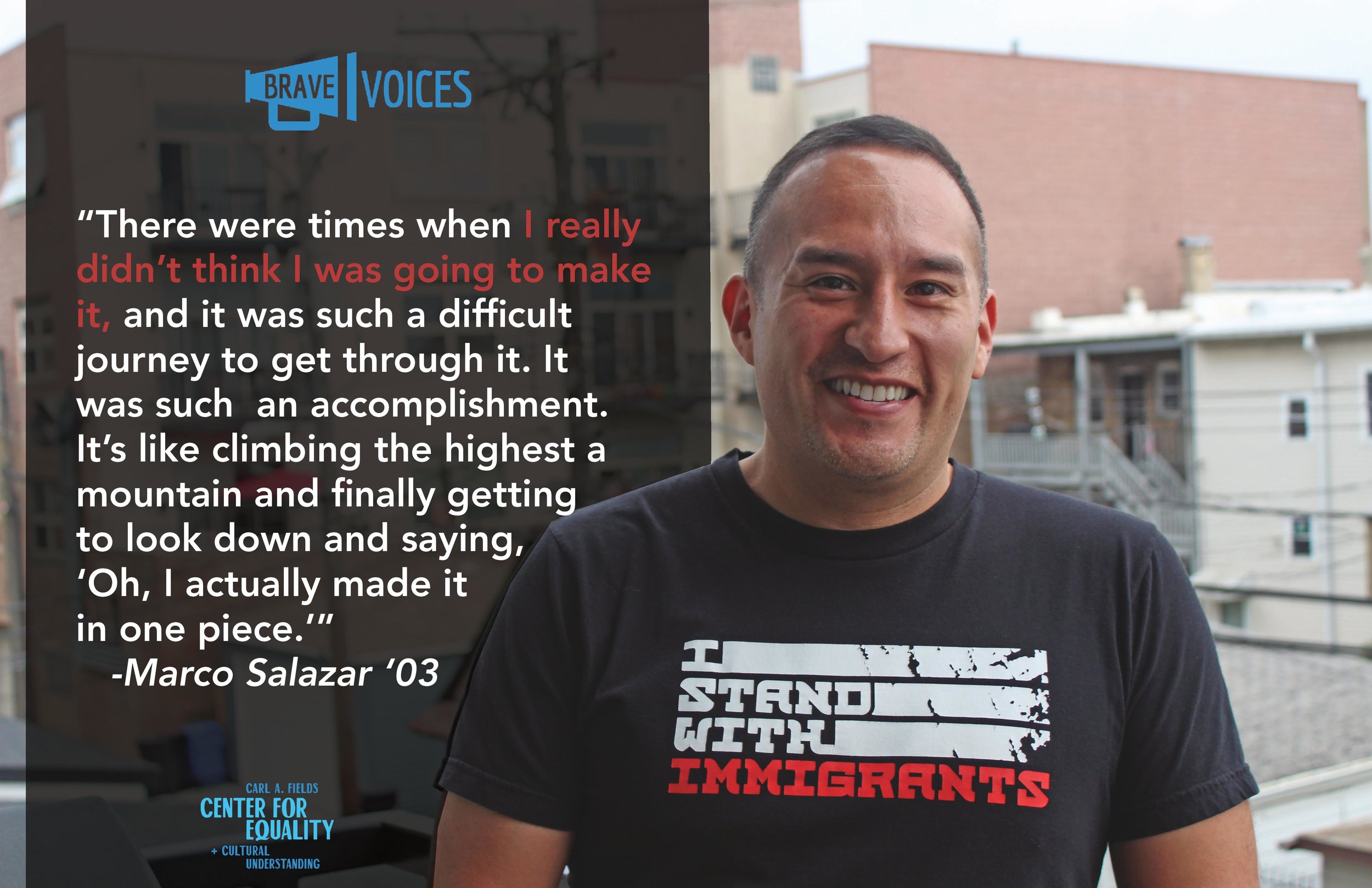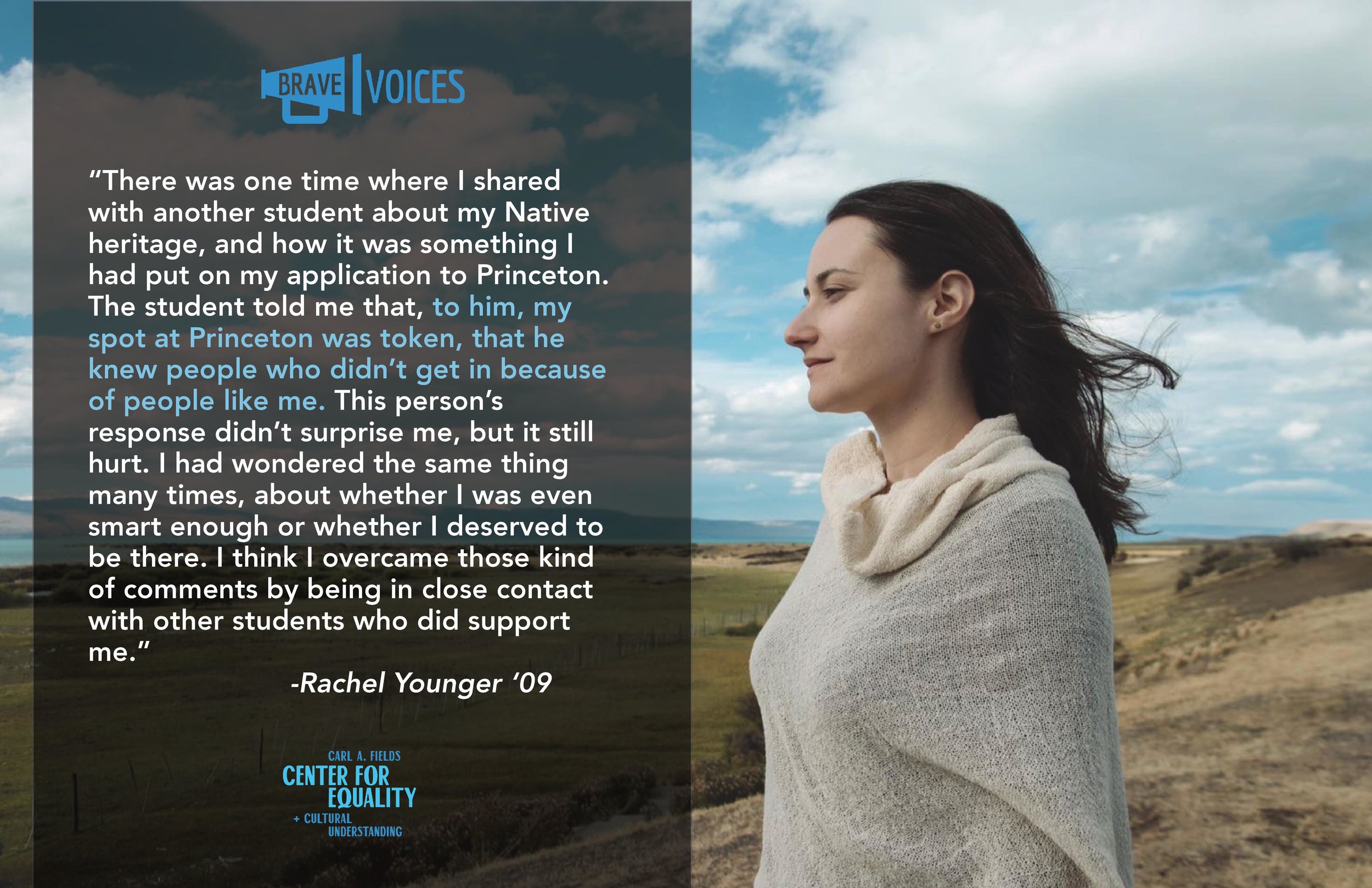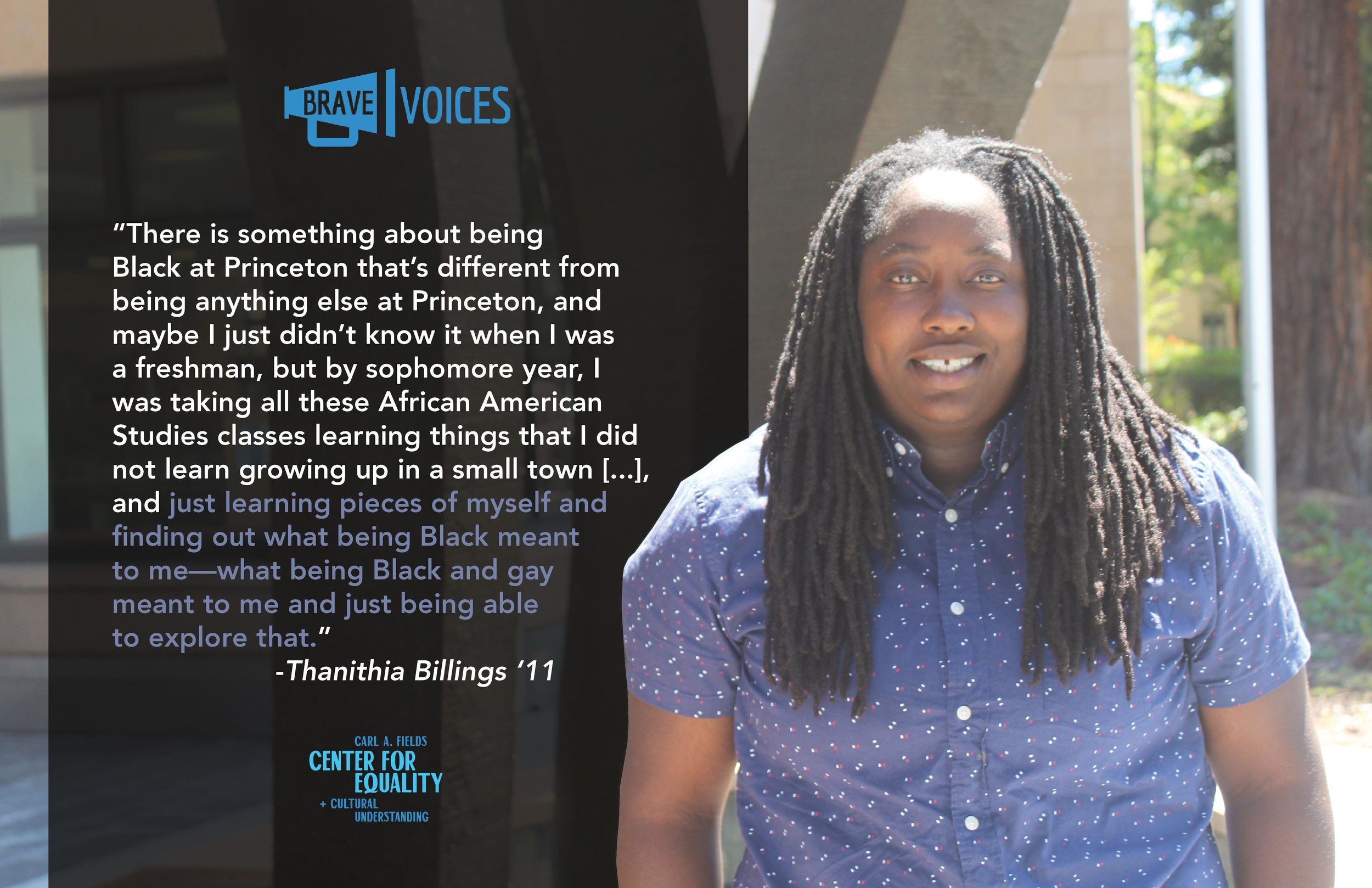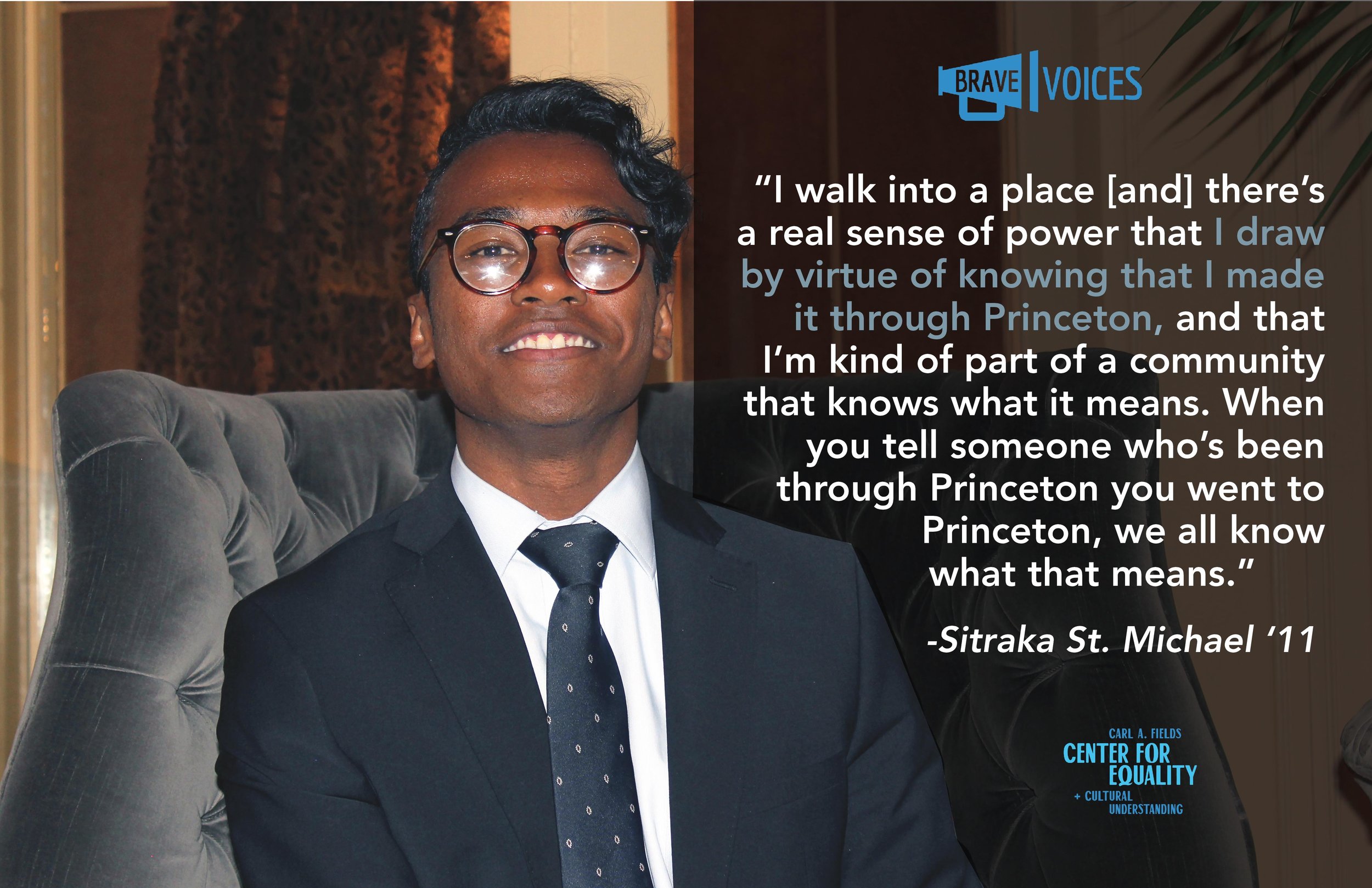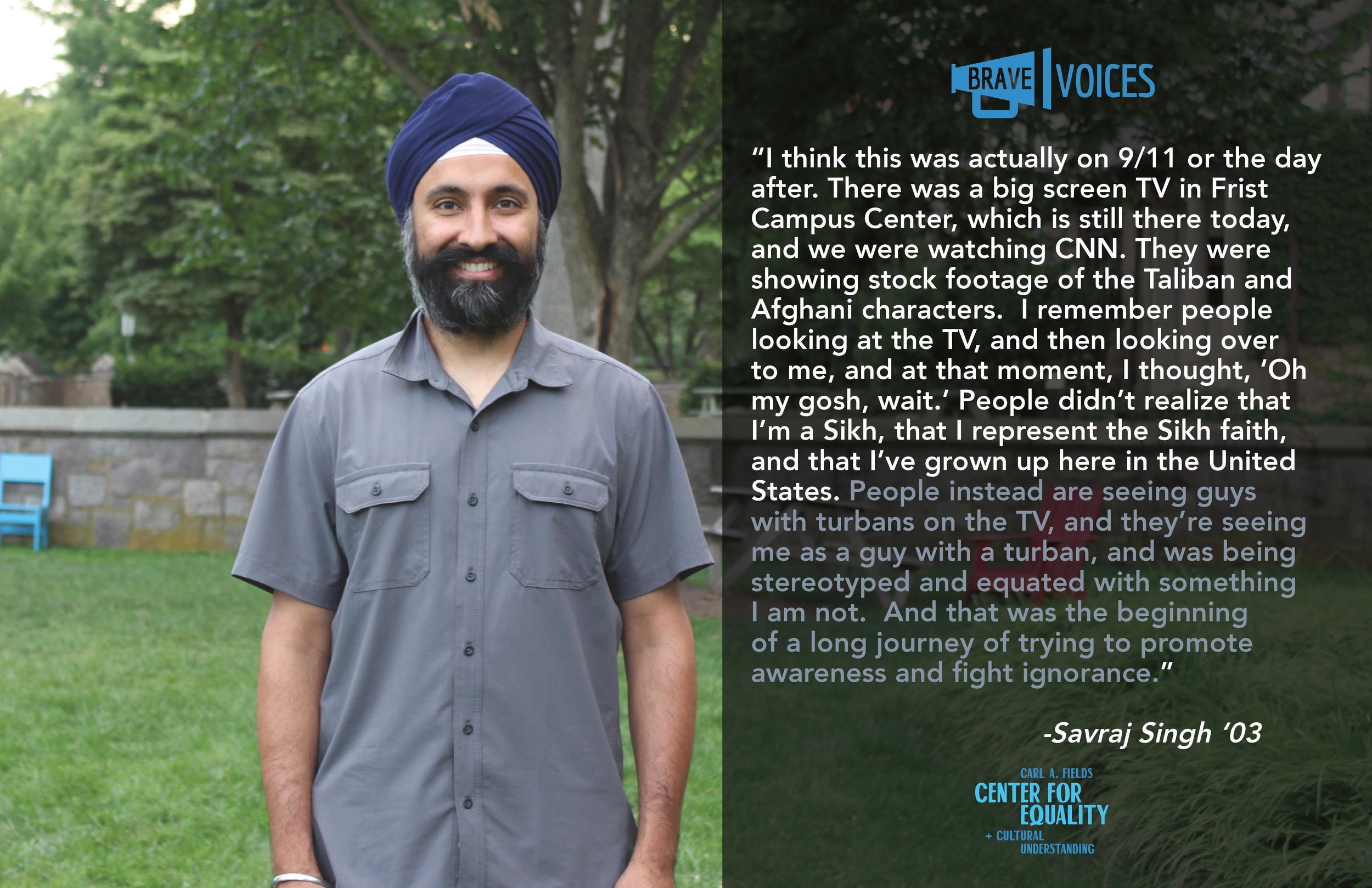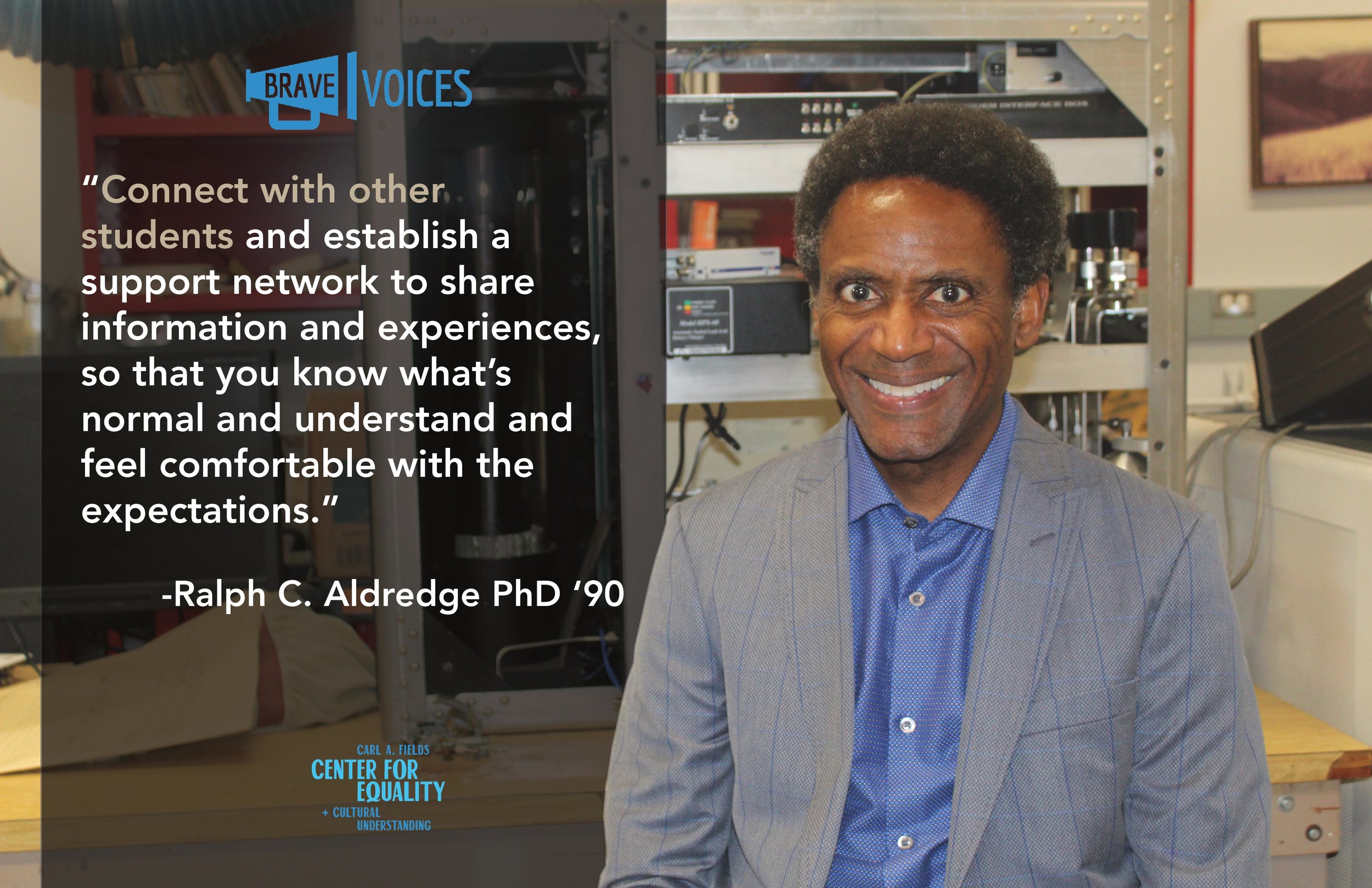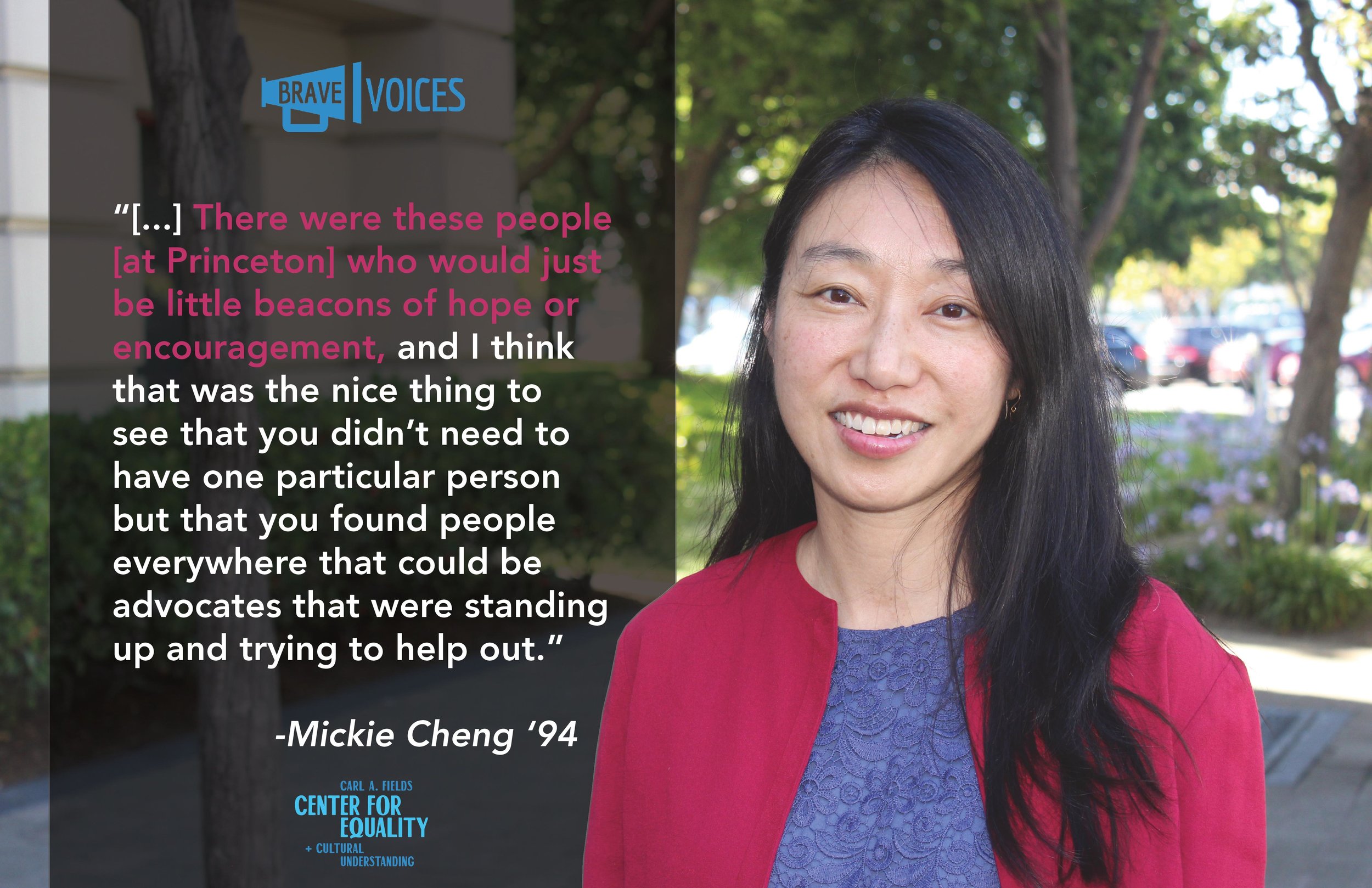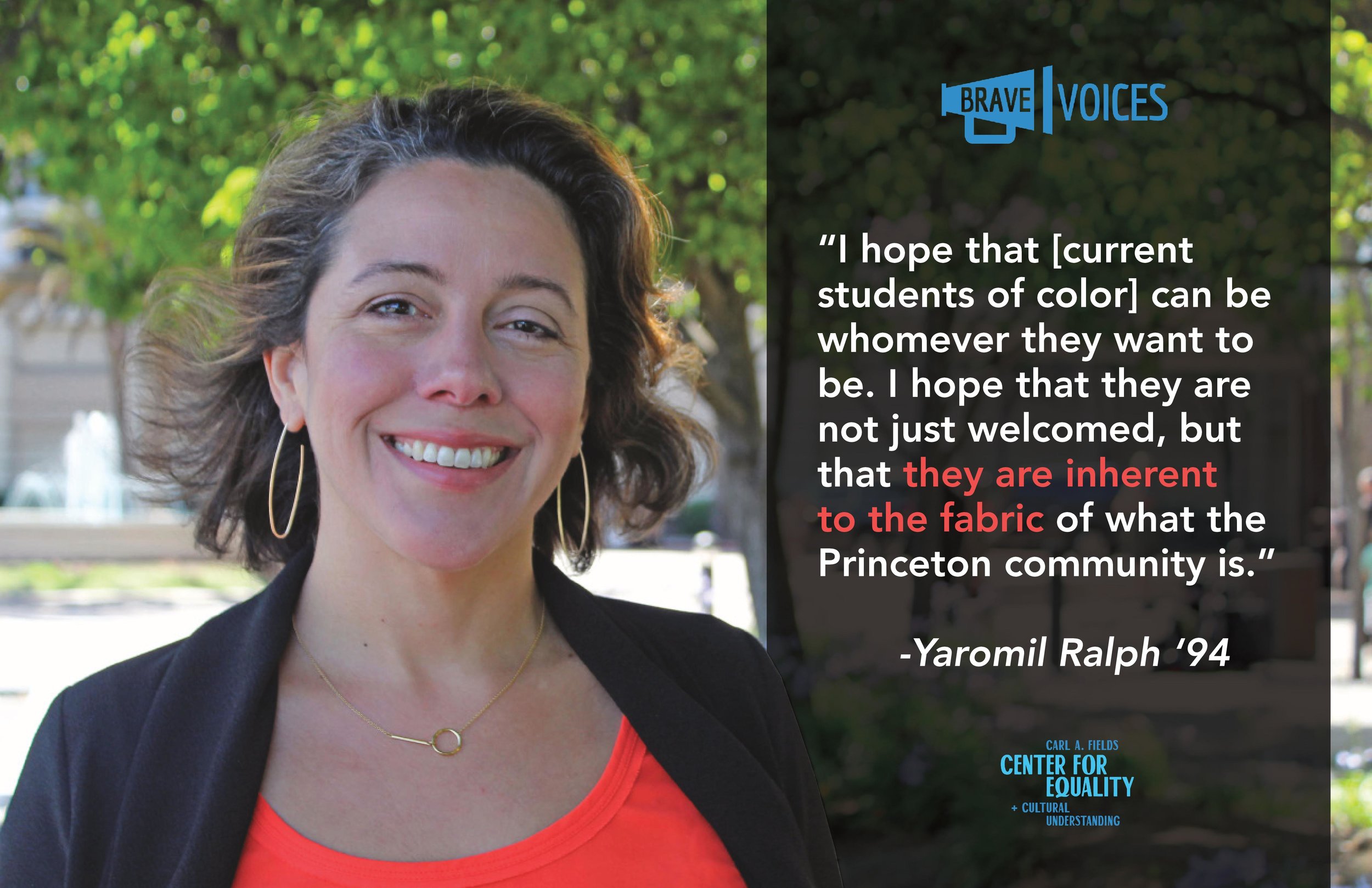Brave Voices Project
The Brave Voices Project is a multimedia project that highlights the experiences of Princeton alumni of color. Launched in 2018, the Carl A. Fields Center student interns interviewed alumni from across the country, gathering stories that reflect the ordinary and extraordinary ways they have shaped—and been shaped by—Princeton. The project uplifts alumni voices by exploring how their identities have influenced and been influenced by their time at Princeton, while fostering a more inclusive and representative campus community through storytelling and awareness.
Participation is open to all Princeton alumni regardless of identity.
Summer 2025
In Summer 2025, Carl A. Fields Center student interns expanded the Brave Voices Project, collecting new stories from Princeton alumni through filmed and audio interviews as well as a photo campaign. These narratives explore themes of belonging, identity, and the transformative power of being seen and heard. This iteration of the project was made possible by the Aspiring Scholars and Professionals (ASAP) program through Princeton’s Emma Bloomberg Center for Access & Opportunity.
Photo Campaign
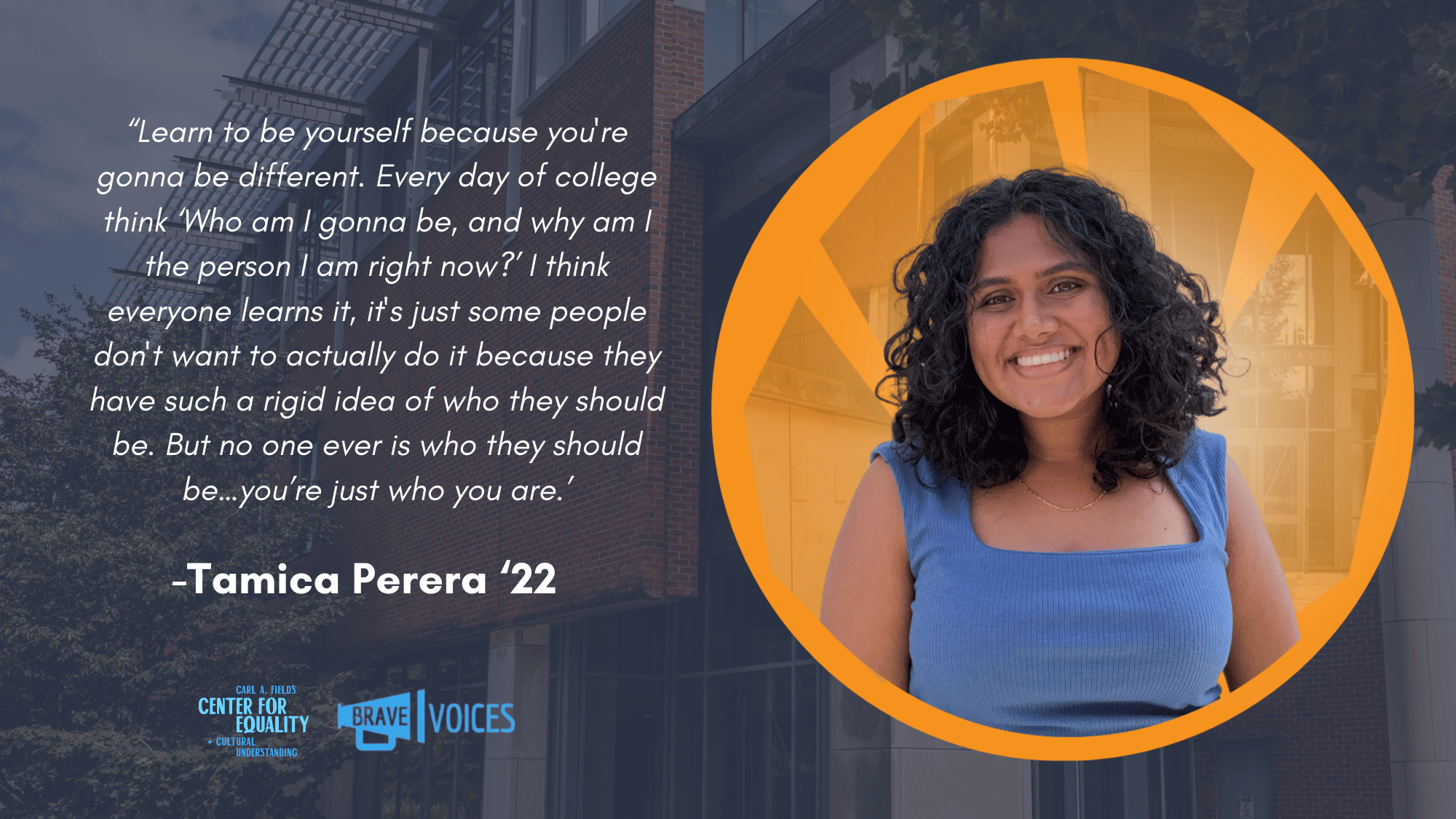
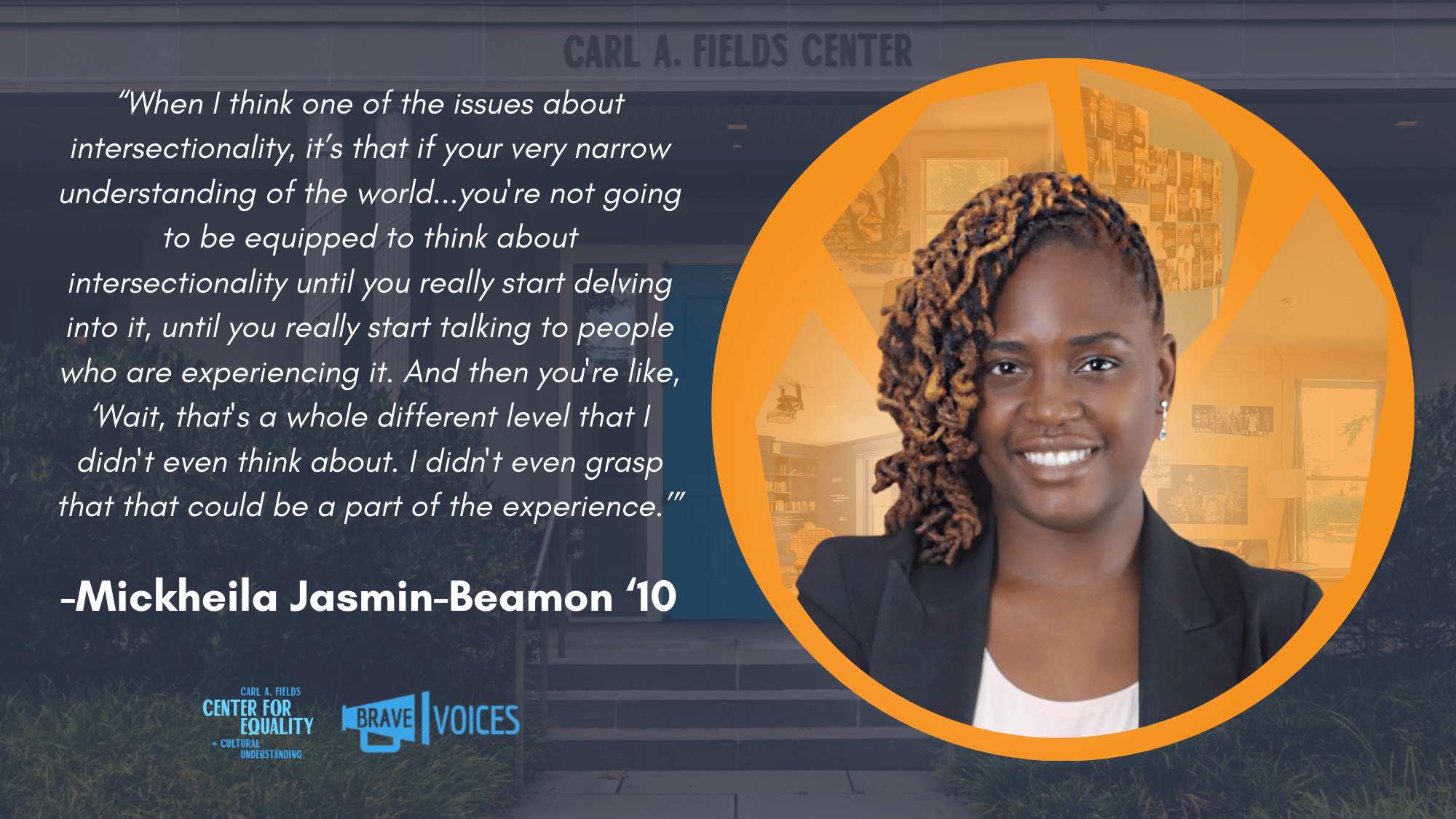
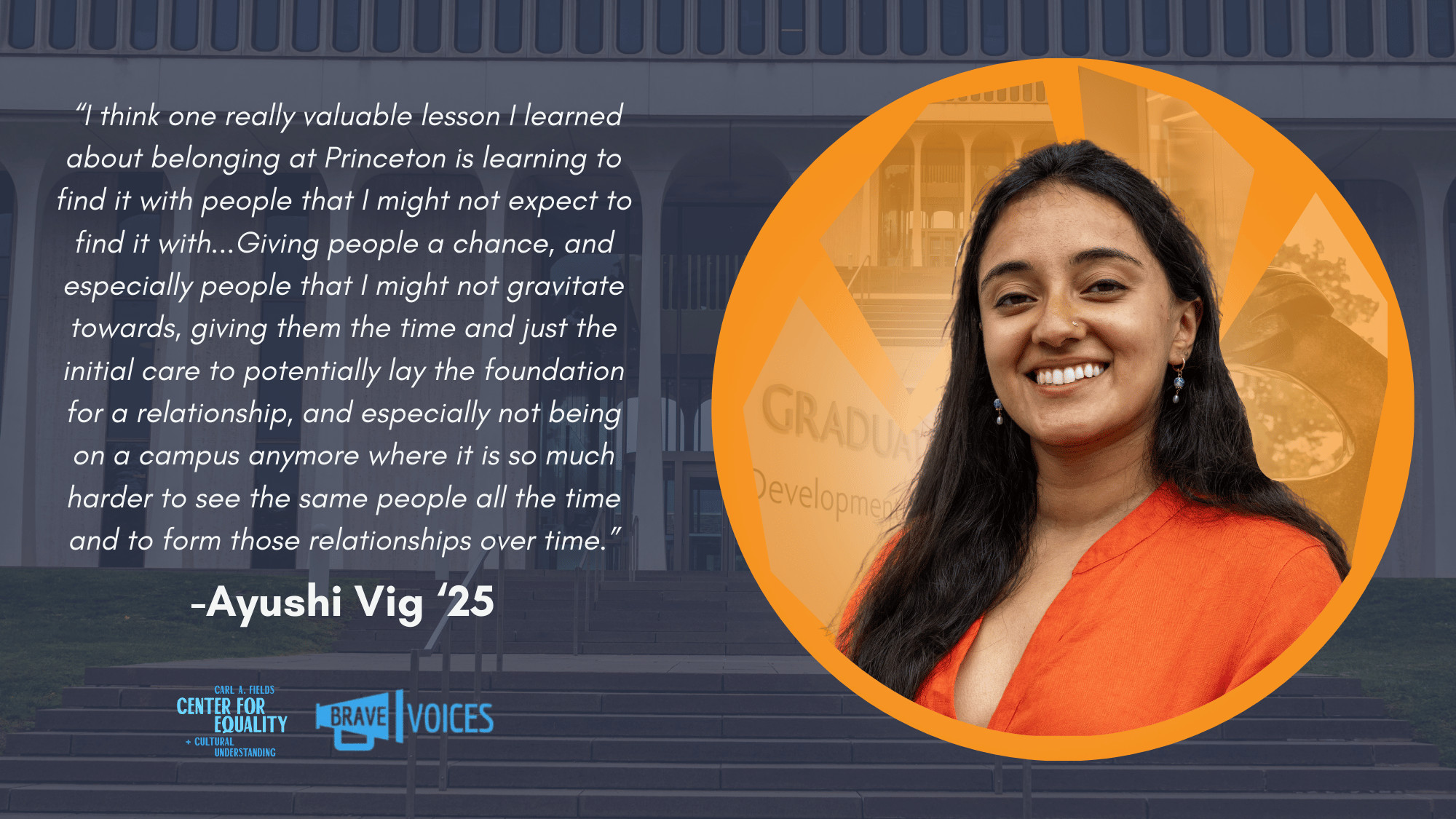
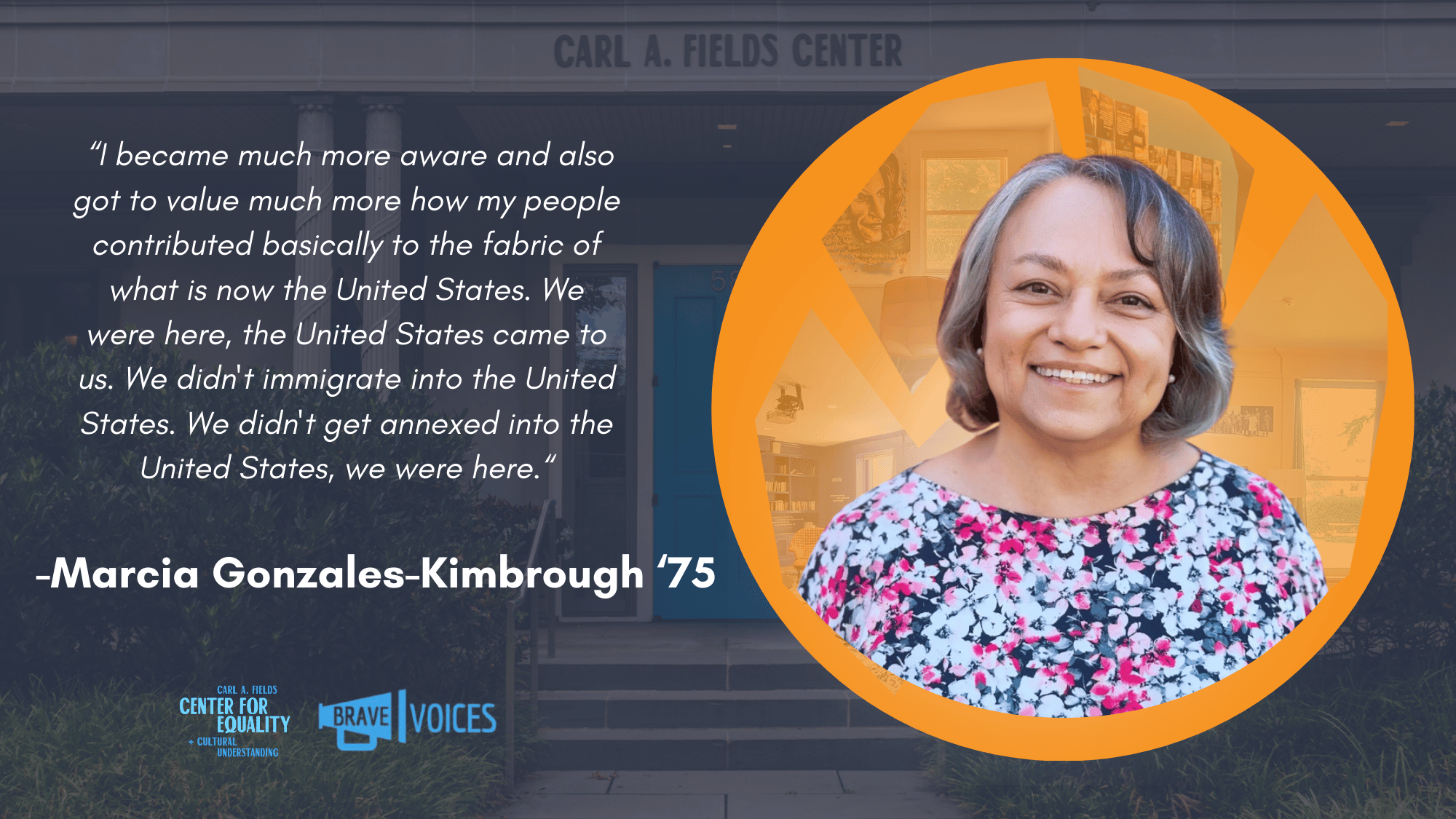
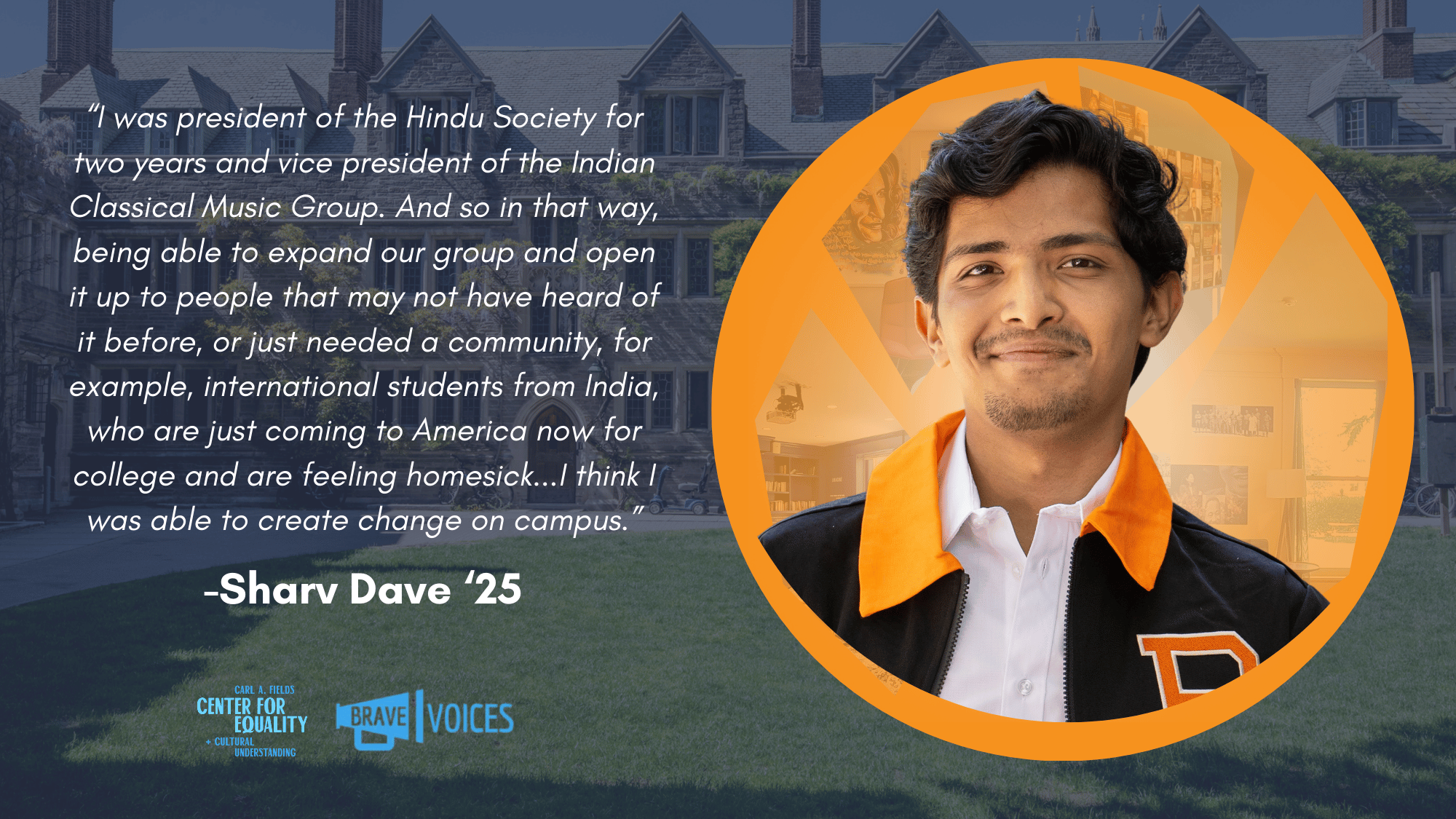
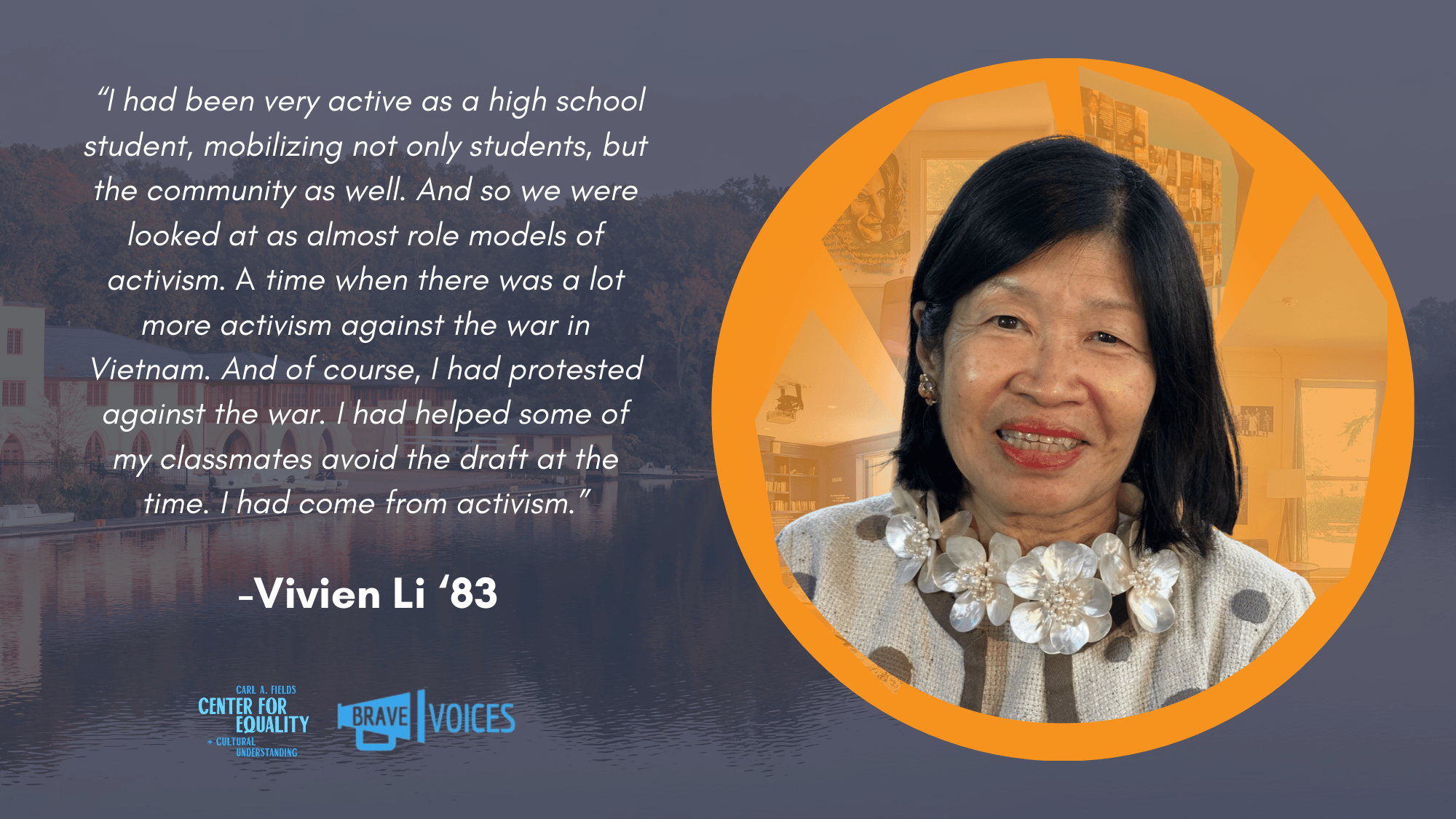
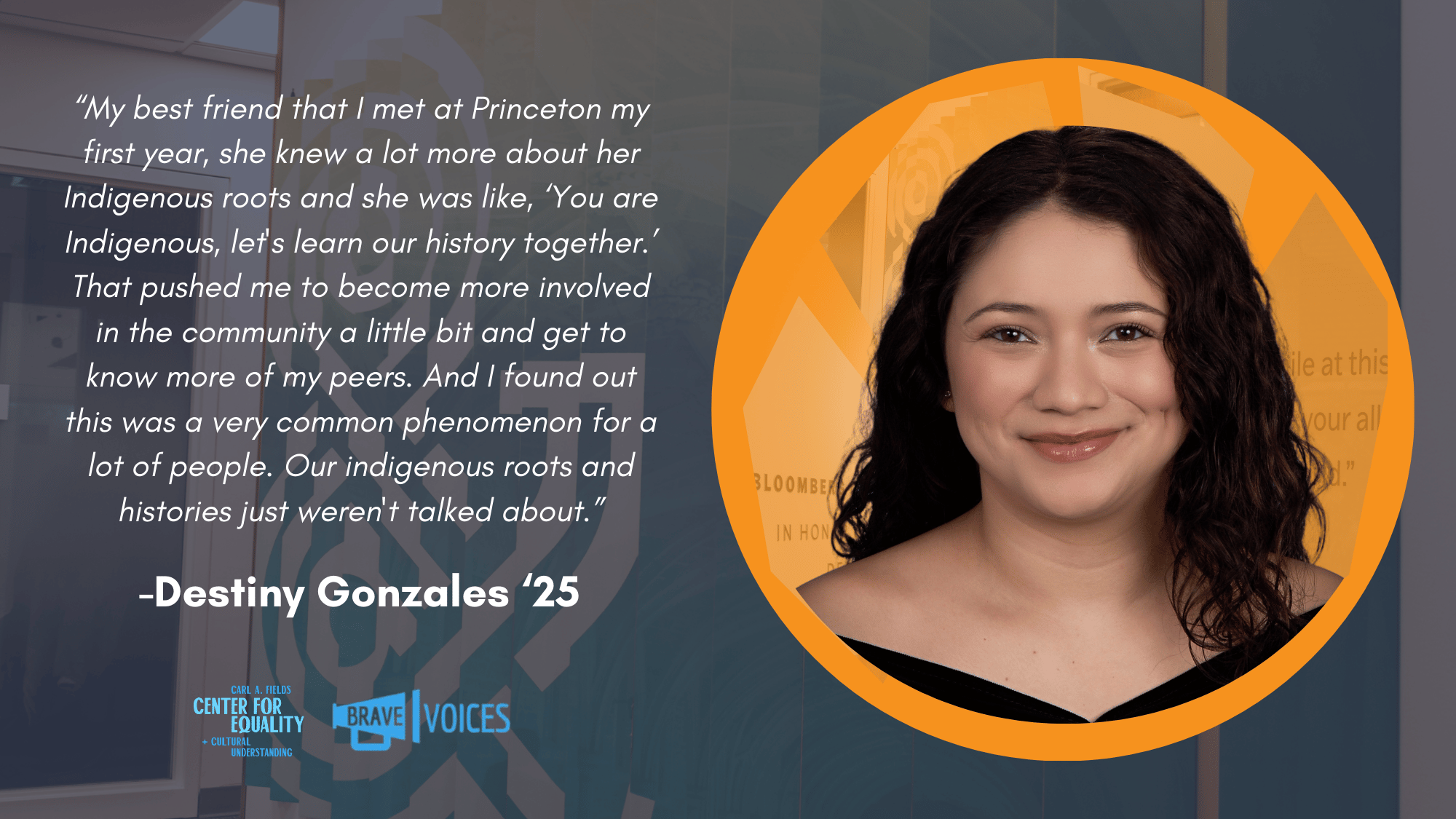
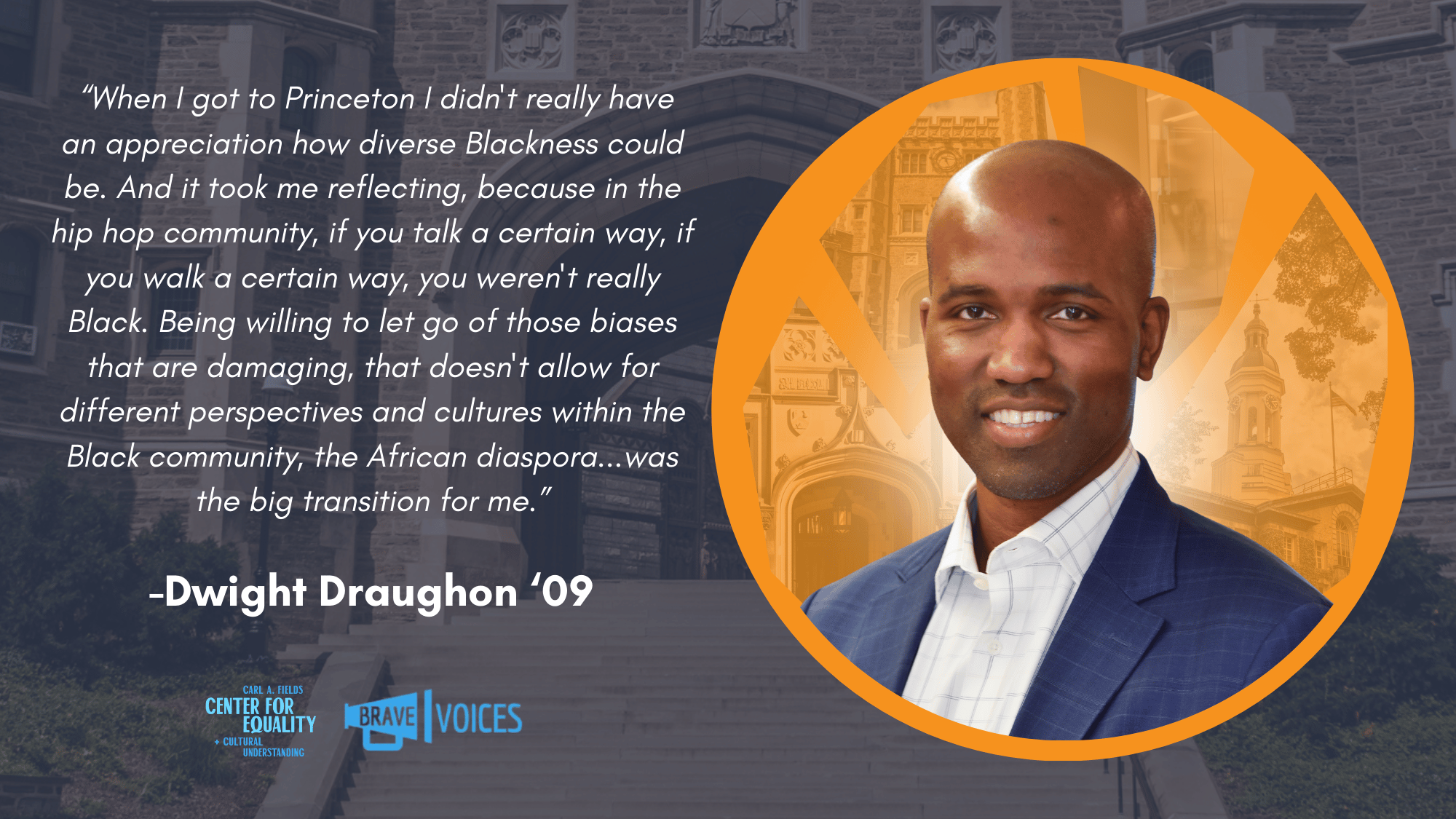
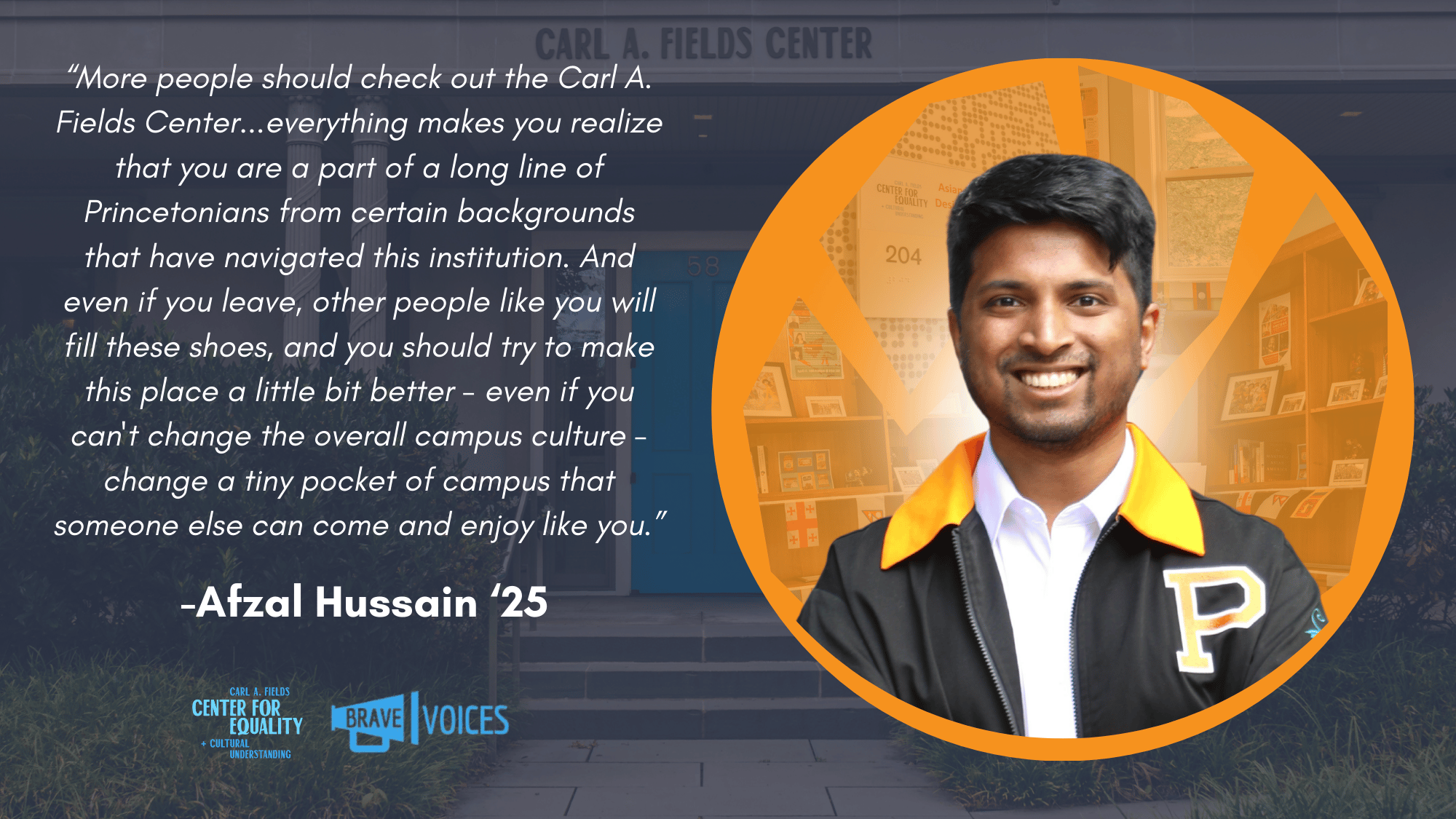
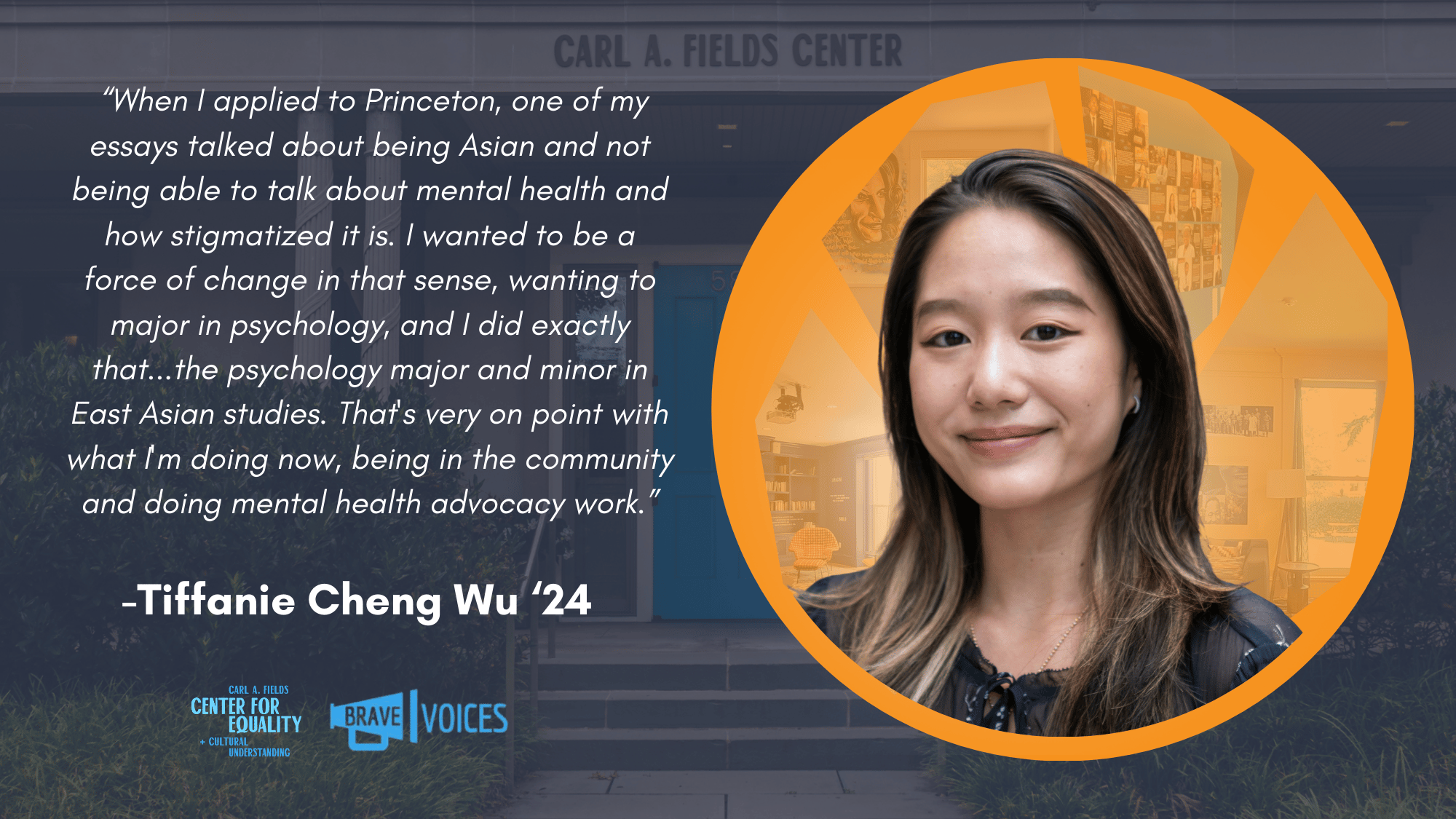
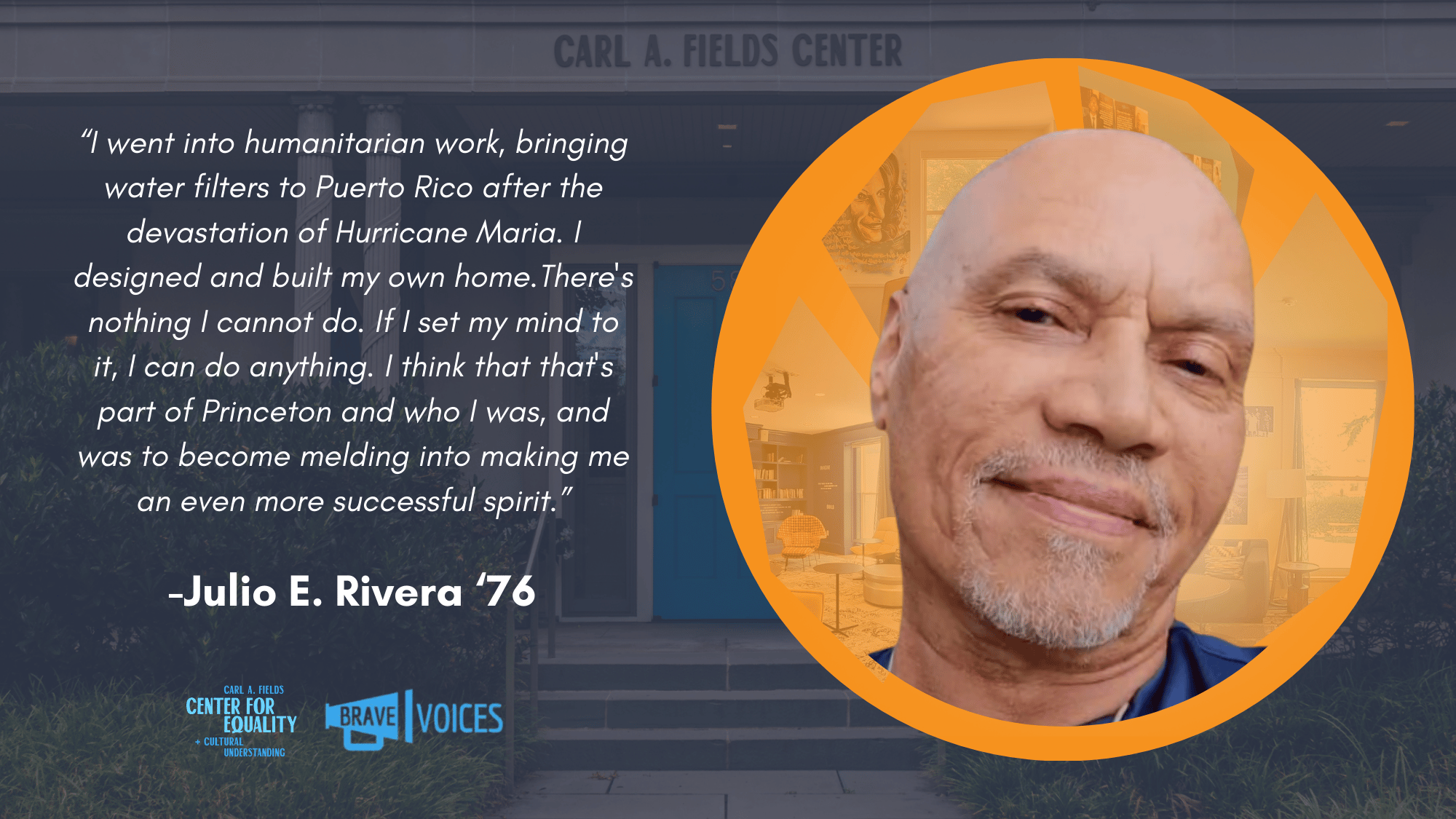
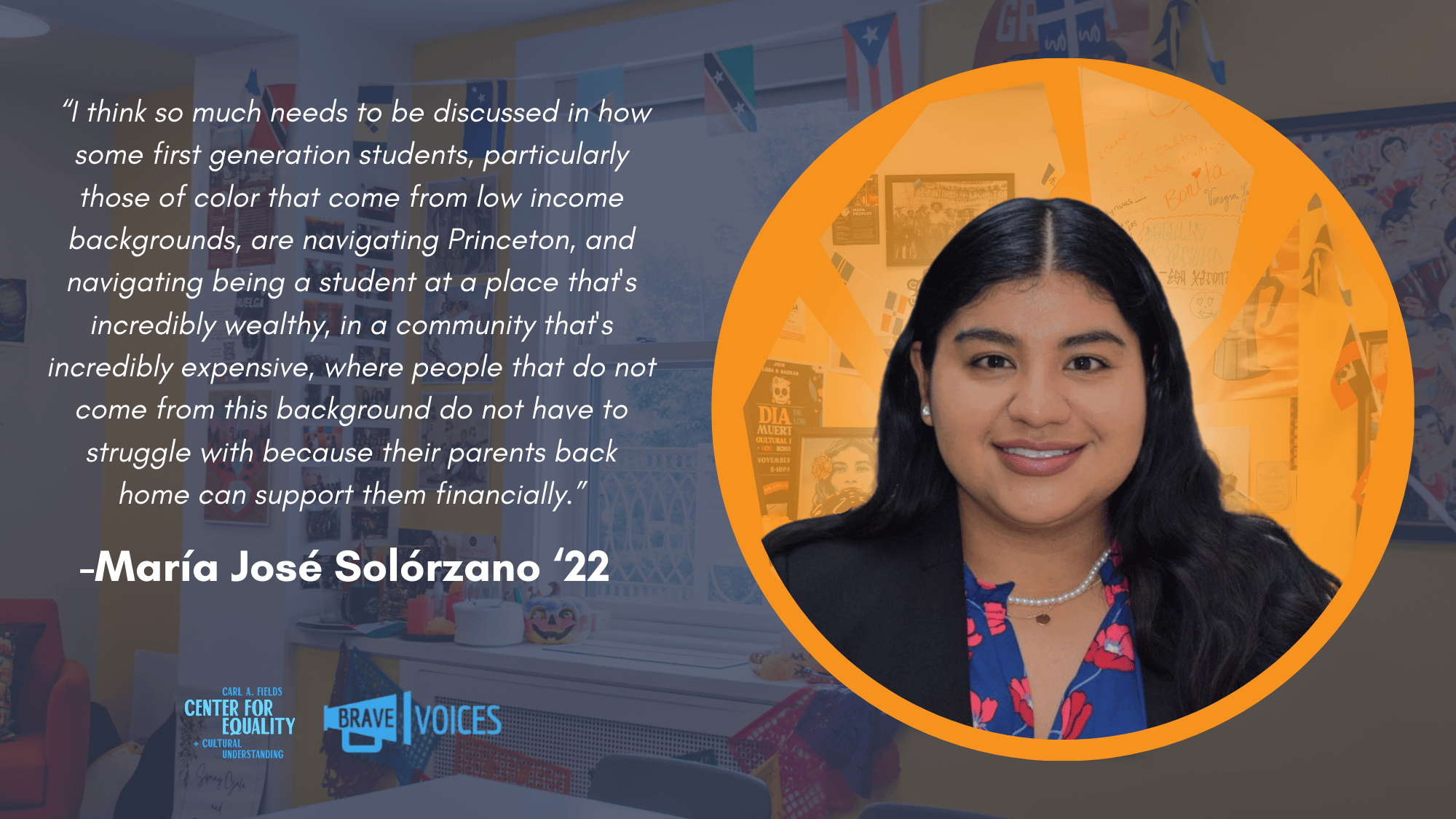

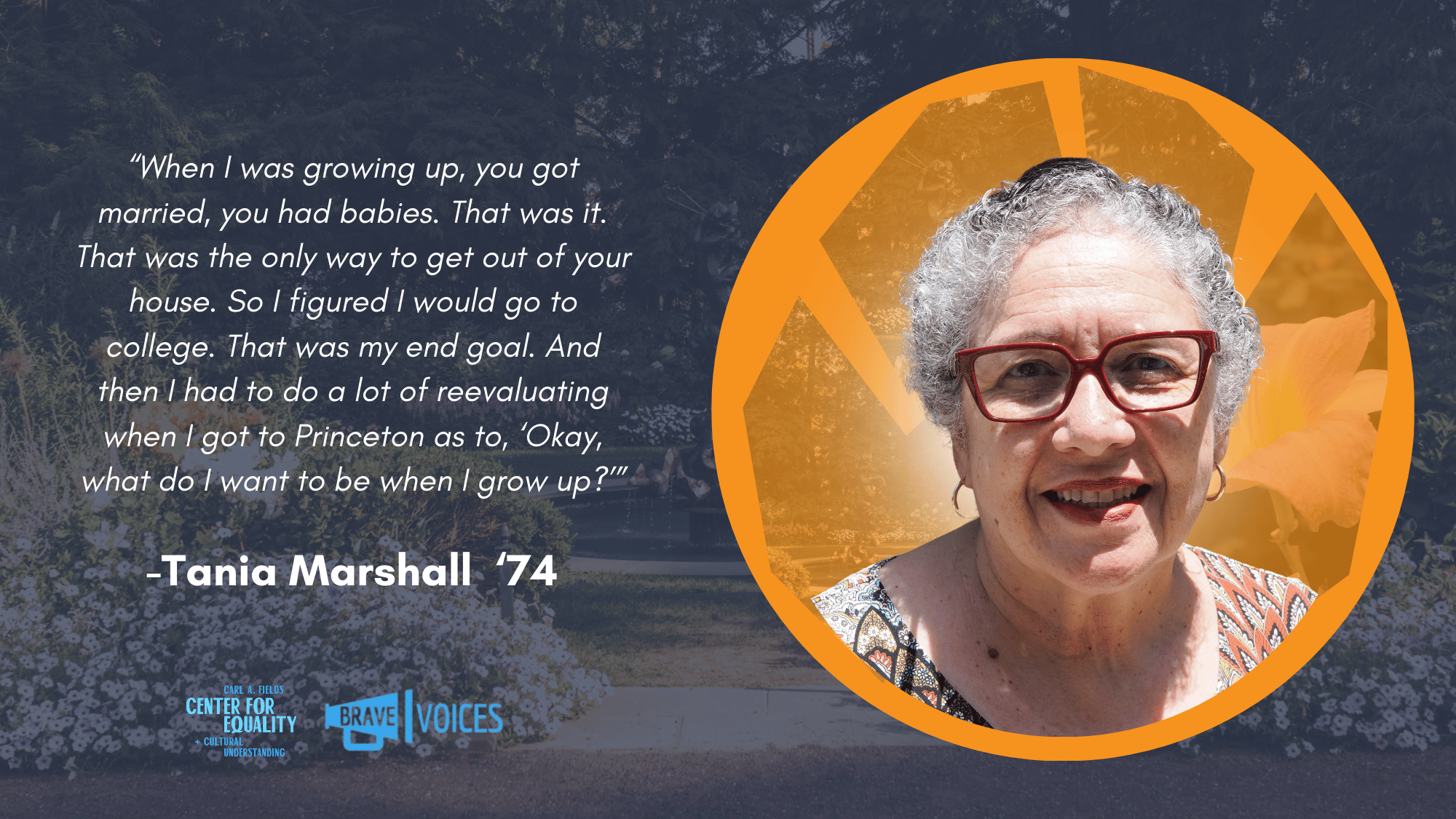
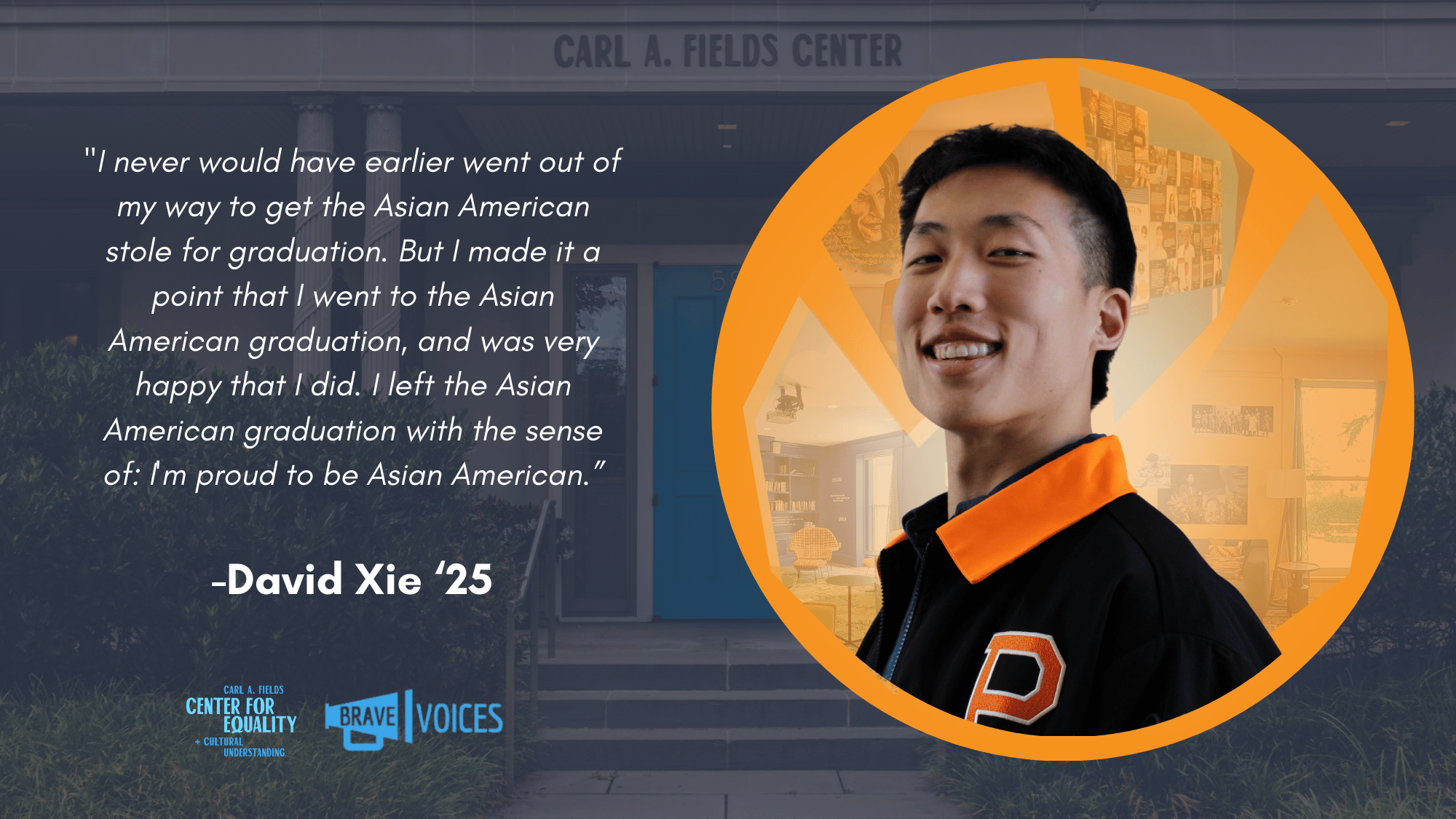
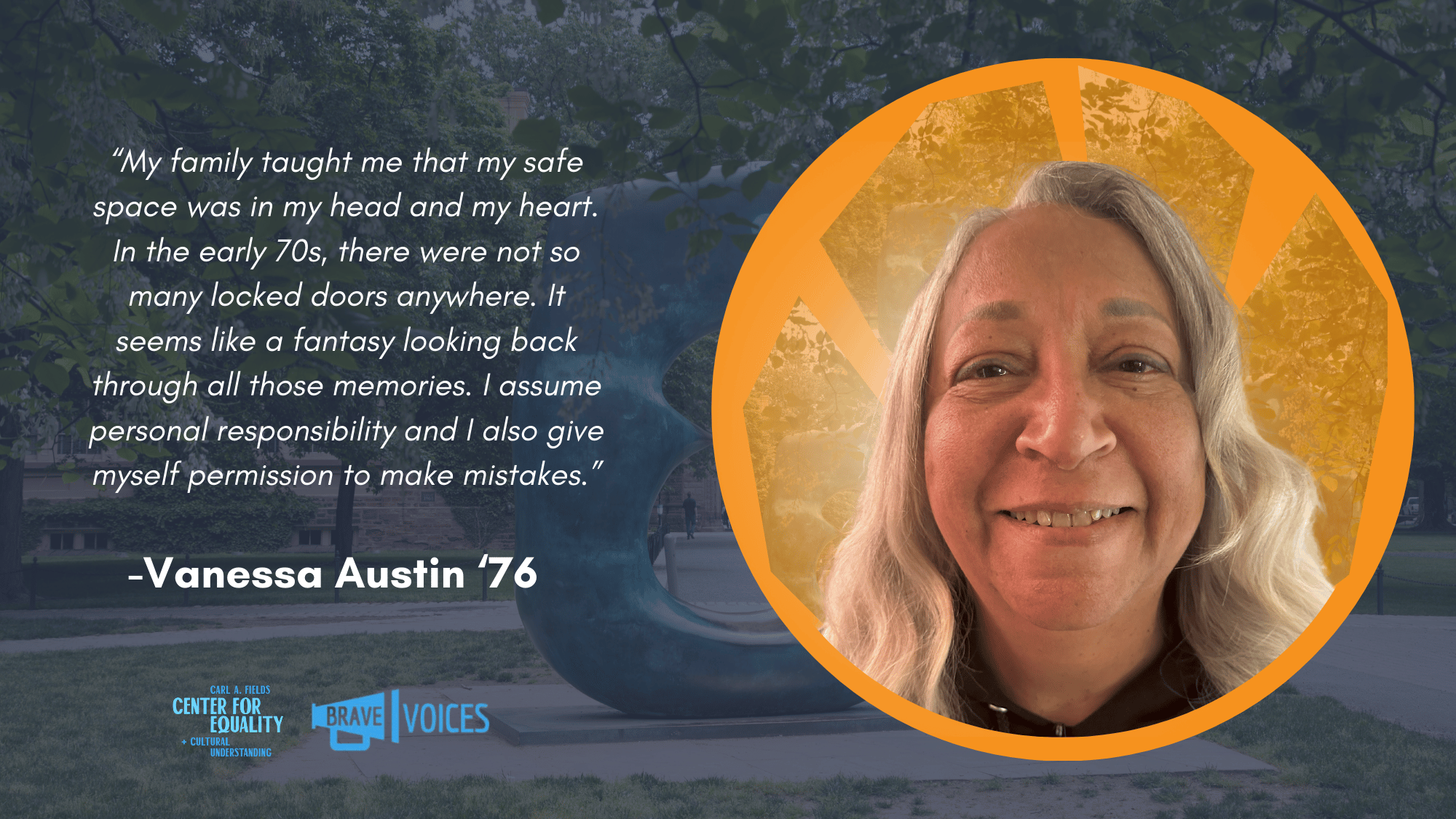
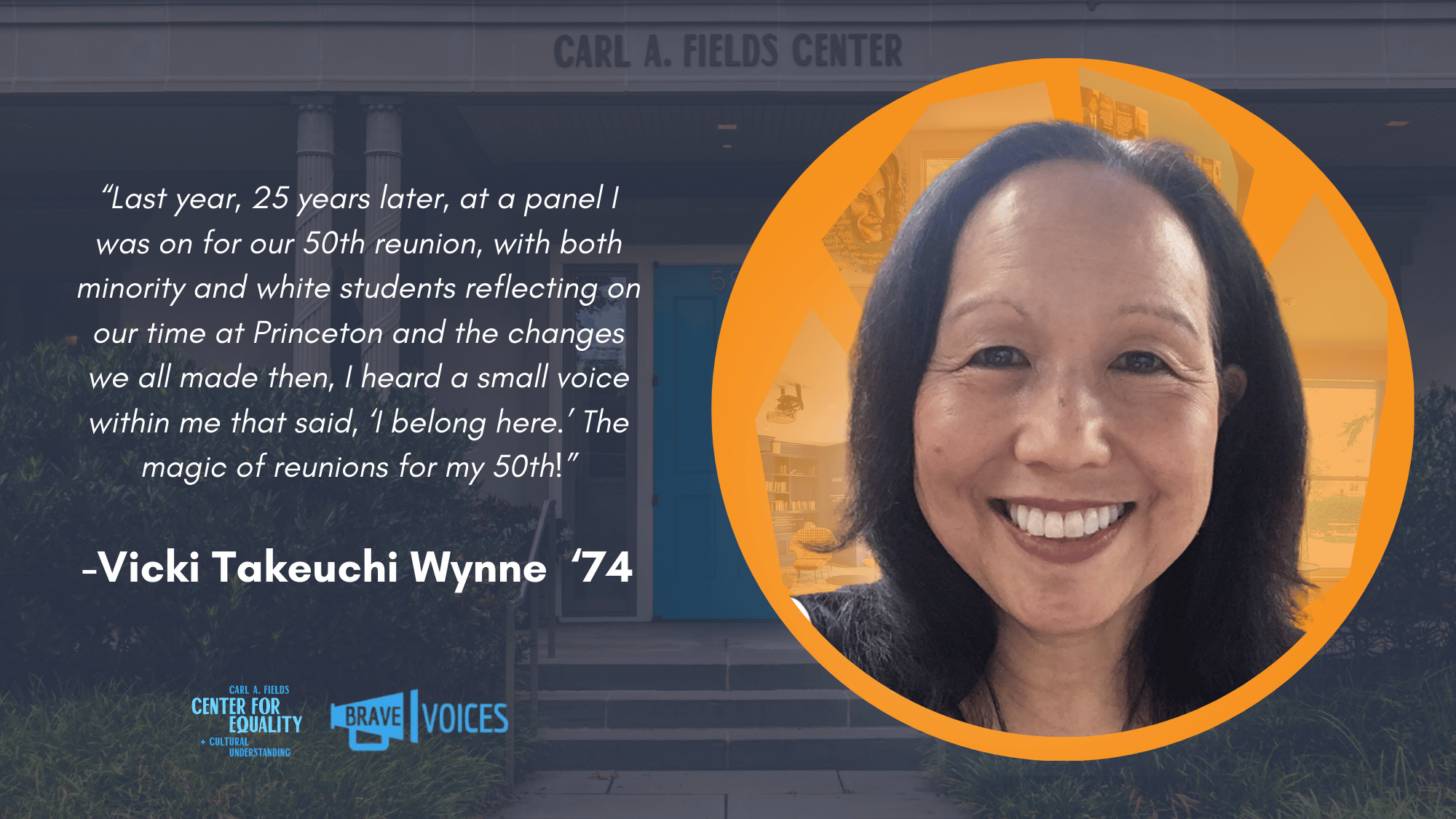
2025 Trailer
Episode 1
More episodes will be released in the coming months
2018-2019
Photo Campaign
Social Justice Through Academia: Princetonians' Fight for Asian American Studies
In the Spring of 2018, Princeton University approved a certificate program in Asian American Studies. The decision was a culmination of over four decades of sustained activism and advocacy by students, alumni, faculty, and staff. This oral history project aims to recount the experiences of some of the people involved in this coalitional effort. From those who organized the 1995 sit-in of Nassau Hall to those who led task forces and wrote reports, fighting for the inclusion of Asian American Studies in Princeton's curriculum was rooted in a collective desire to more critically examine race and power in America.
Daily Princetonian article from 8/16/2021: ‘A long battle fought’: The history of Princeton’s Asian American Studies program and a renewed push to expand
Compiled by Fumika Mizuno ‘21.
Andrew Hahm ‘17
“...if I just sort of came up and said I’d like a class on on Asian American history, I don’t think I would have had the resources without the older folks in the group and those in the years below me, of how exactly it is that this fits in into other movements that happened in the past and what kinds of tactics and strategies have already been tried before, what exactly about a given movement and moment makes certain kinds of progress possible.”
April Chou ‘96
“Part of what we came to realize is that the institution and universities in general take a long time to change. Student life, in the scheme of things, is very short in terms of the university’s memory. We really came to realize our time is going to run. They can, by doing very little, run down the clock and then we’re not going to be here putting this pressure on.”
Evan Kratzer ‘06
“I think for me it’s not just the story of taking an artificial category at some level [of] Asians, which is so broad and just superimposing a filter through which you view American history, but [also] seeing how there actually are so many commonalities about how Asians in the United States experience race. Ultimately, even if cultural backgrounds or perspectives or what people care about might be different, ultimately, how you are perceived as being Asian in the United States is so important and fundamental that you can’t just ignore the aspect of race and how that does help to actually in many ways make Asians Americans have many things in common.”
Karen Ho GS’95
“These studies are about learning the larger historic social processes. It’s about learning how groups get constructed and categorized and made in the first place. Not a priori. It’s about how categories get put against one another and pitted against one another. It’s about the relationship and the unequal relationship. We spent a lot of time thinking about why this was important and why this was important for social justice and academia writ large.”
Linda Zhong ‘05
“I think ethnic studies and Asian American Studies is important because a lot of the times, we don’t have the vocabulary or the words to situate ourselves in the conversation. Everything that I learned in Asian American history - it gives you the language to break down the monolith of Asian Americans.”
Nick Wu ‘18
“I think it’s important to give students the kind of framework that they need to understand the world they live in. It doesn’t just have to be Asian American students, Asian American studies. And I think it’s something that it equips all students with the tools to understand their world, be it in my line of work with politics, or even being able to understand things in the workplace, or just understanding the broader context for things, when they pick up the news and try to reconcile headlines they see about xenophobia and COVID with also the Asian American officer involved in the George Floyd case. It makes it incredibly important for students. ”
Rebecca Weng ‘18
“But for it to be institutionalized and for it to be baked into the system, I think it is sending a very clear message to students that we see that you’re a part of our community. And we want to hear from you and we respect your legacy and your history, that the legacy that we believe in is not just a white one. It’s not just a white male one. I think specifically to Princeton, it’s also really important for Princeton as an institution to have ethnic studies, to have indigenous studies, to have African American Studies, to have all these different ways and perspectives of looking at history and people and narratives, because historically Princeton has been one of the slowest to involve other people”
Stephen Chao ‘19
“I, like many of my Asian American peers, was initially drawn to Asian American Studies because I thought it would help me uncover “my” history. I quickly found out, however, that Asian American Studies is not simply about representing the U.S. with Asians at the narrative center – as important as that project may be. What excites me about Asian American Studies is how it draws from Asian American experiences in order to interrogate both the racial formation of Asians within and outside of the U.S. and the maintenance of the U.S. nation-state as a whole. Asian American Studies is not simply for Asian Americans; rather, it is a versatile discipline that provides everybody the tools to destabilize notions of race, citizenship, gender, sexuality, class, etc. History, literature, the arts, technology – these are all forms through which people can engage in Asian Americanist critique. ”
